Business & Management
17 Government Fisheries officials skilled on Bio-Economics of Fisheries Management
Published
2 years agoon
By
Jane Anyango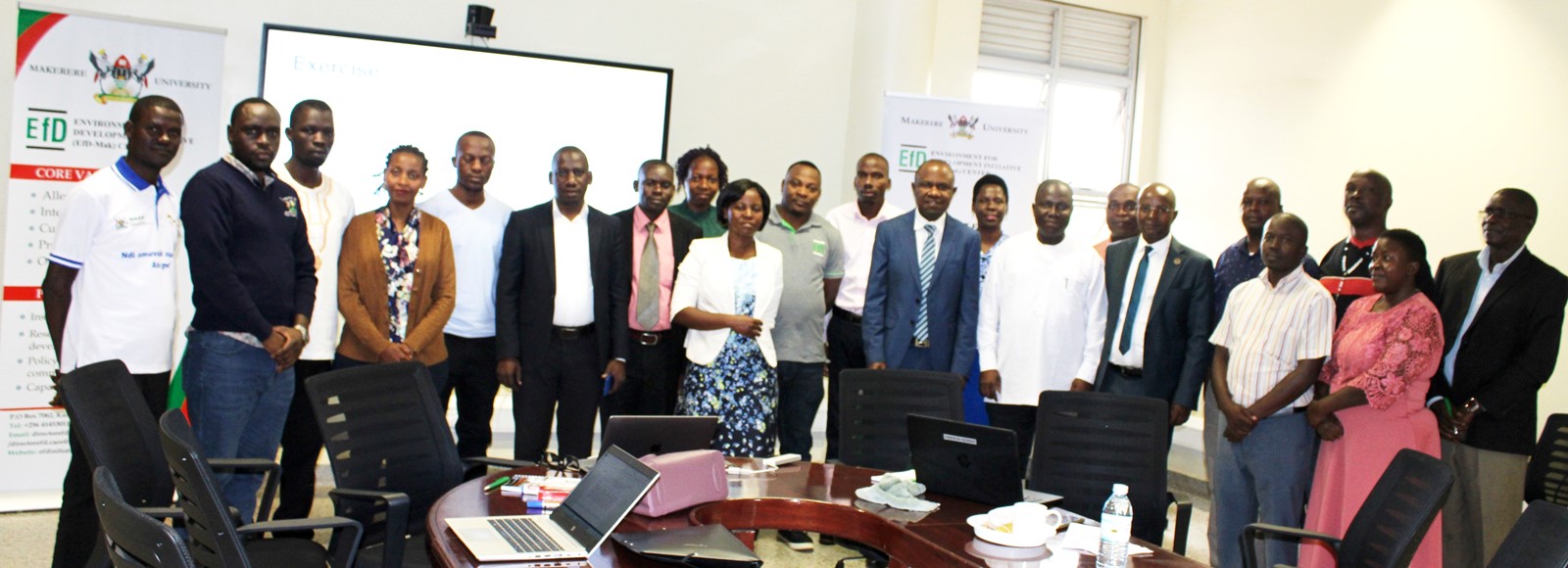
Seventeen (17) fisheries experts from the Uganda’s districts of Kampala, Mukono, Masaka. Wakiso and Jinja have been retooled on the bio-economics of fisheries management . The two days training (15th-16th March 2023) held at Makerere University was facilitated by Africa’s and Ghanaian renowned Professor of environmental economics, Wisdom Akpalu.
Prof. Wisdom was invited by the EfD-Mak centre to come and provide training on bio-economics of fisheries management to fisheries officers in Uganda. Prof. Wisdom is the centre Director of EfD Ghana but also the member of the coordination committee of the entire EfD Network and member of the capacity development committee of the EfD Network but also, the leader of the Blue resources for development- a collaborative program within the EfD Network where fisheries fall.
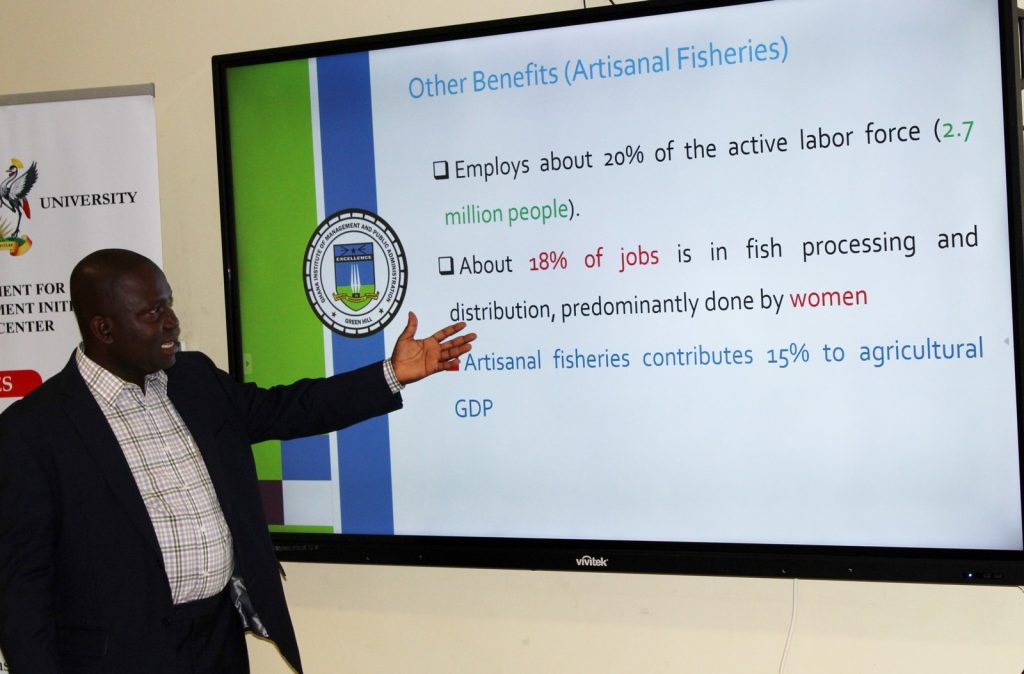
Government fisheries officials were retooled on different aspects including the cost, revenue and profit in fisheries economics, growth functions in fisheries, property rights and resources extraction, policy instruments to regulate overfishing. Other aspects were dynamic equilibrium and the concept of shadow value, destructive fishing practices, resource use externalities and the performance of capture fisheries in Africa.
The training was officially opened by the Principal College of Business and Management Sciences Assoc. Prof. Eria Hisali who congratulated the centre Director for organizing this training and other initiatives adding that, they are important because they add to our visibility as a a college and university and it also takes us to the government and other agencies out there.
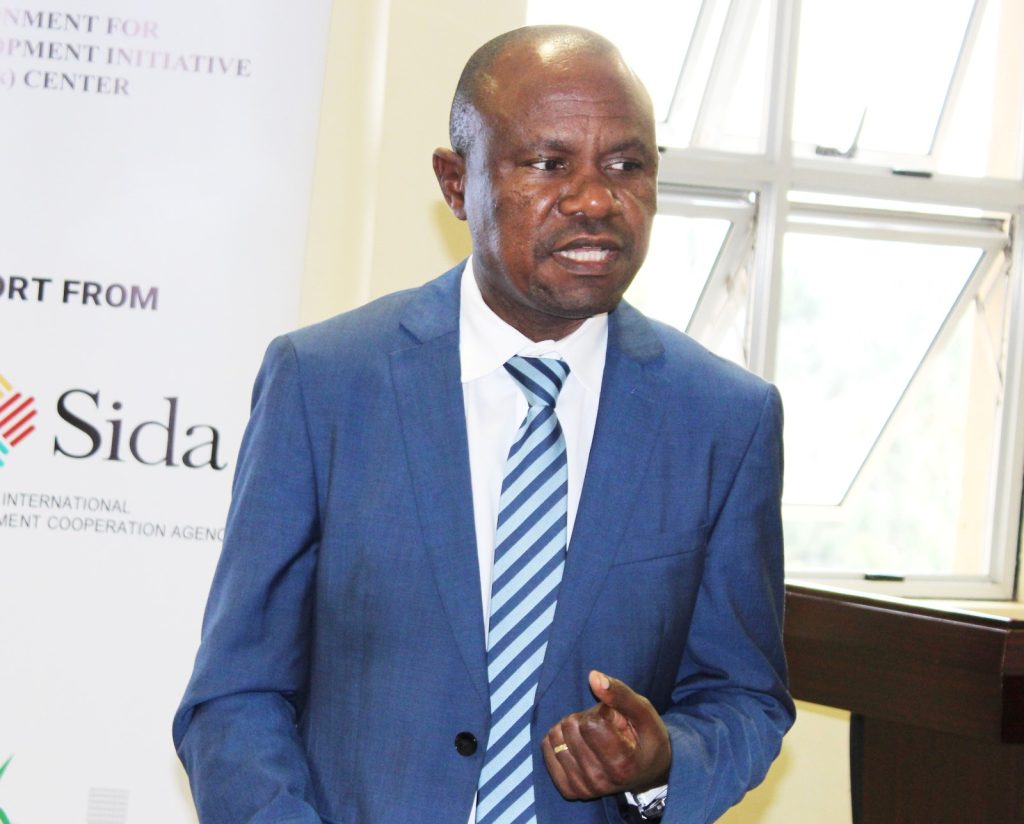
Prof. Hisali noted that Fisheries and fish related products are among and still remain among the five leading exports from Uganda while Africa is one of the two continents where the big proportion of the population still lives directly of the fishing activities and Natural resources in general.
“Our concern then, is the way these activities are being undertaken is not sustainable we risk depleting these resources because of population pressure, and unsustainable practices and once that happens it threatens our existence of our continent but also as countries because if we deplete resources and yet we are living directly of the same, then everyone should be starting to imagine what will happen.
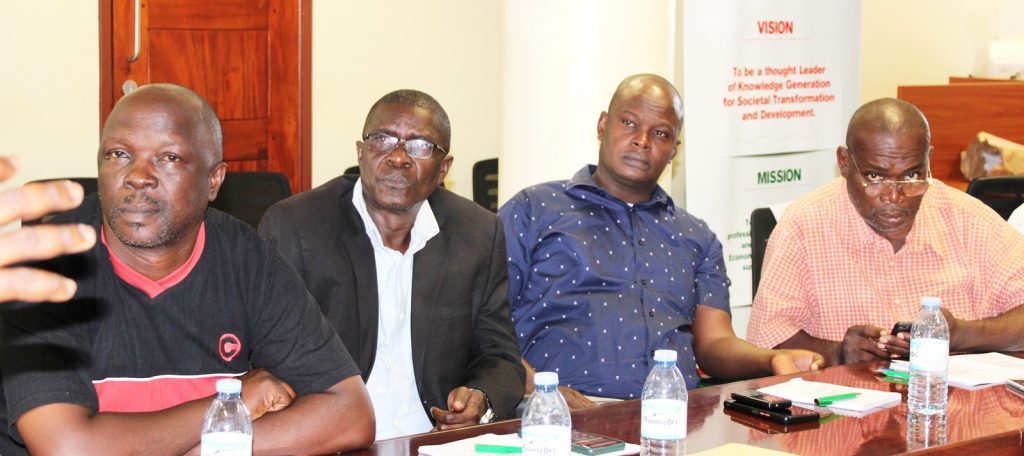
What will happen is untold suffering but also direct conflict for the little resources that would have remained and disintegration of countries and societies” he decried
The Principal challenged all participants to look at the strategic importance of the lessons to be undertaken in the two days
“This intervention that the center is undertaking to share insights on how best we can sustainably use these resources becomes very important for the very survival of our countries. I want you to look at this training as a very important one because it speaks of the very basis of our survival as a country and continent”, Prof. Hisali stressed.
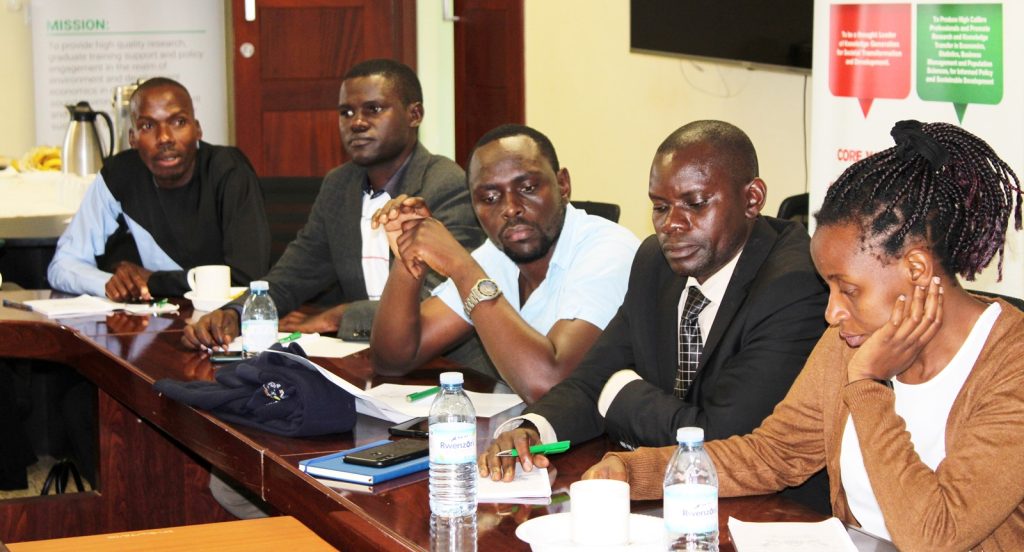
Prof. Hisali advised participants to form a network which should go deeper into ideas given by Prof. Wisdom, contextualize them and ensure they are fully applicable to the Ugandan situation and begin influencing sustainable practices and policy.
“Some civil servants at your level tend to under look themselves. You are extremely powerful and you can influence so many things. So go with that confidence and come up with suggestions that are practical, make sense and that can be implemented.
As a university and specifically the center, Hisali pledged full availability to work closely with the fisheries experts and to convene in case they have ideas to work through the nitty gritties and contribute own insights .Prof. Hisali also pledged that the university will equally be available in terms of creating platforms for the works that fisheries experts do to engage wth policy makers.
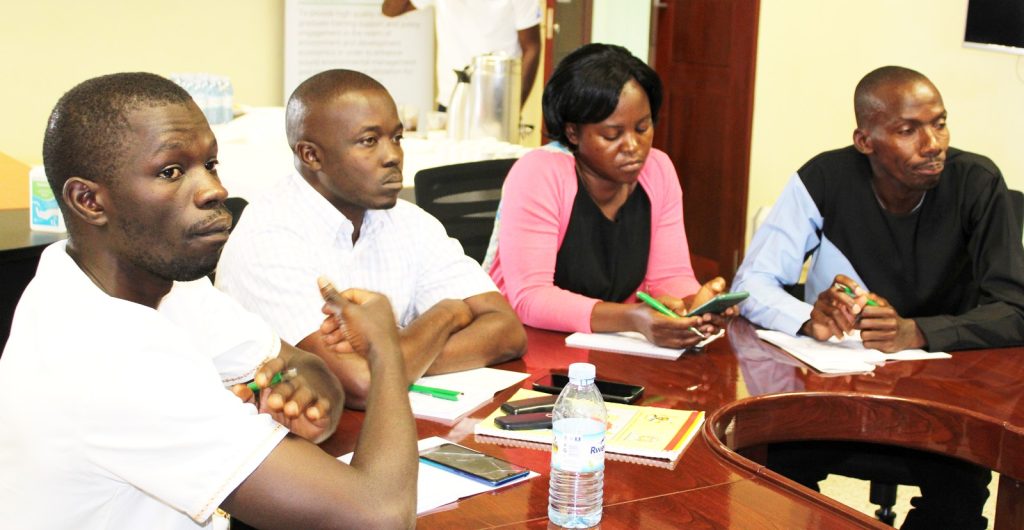
As they integrate lessons and experiences and insights, and as they develop materials for policy advocacy, the principal implored participants to get back to working places and pass on the message to build capacity in institution to have a critical mass of public servants and members of the community who have a different perspective on the way of handling natural resources and understanding the implications of mismanagement of resources.
“History will judge extremely harshly if we don’t take the necessary actions today to ensure that the next generation of the people in our continent live a better and more meaningful life”
The Principal thanked Prof. Wisdom Akpalu for making time to come to Uganda and Makerere University in particular to share the knowledge, skills and experiences from Ghana, expressing the need for opening up to share cross country comparisons to learn from one another on the basis of areas with commonalities.
Knowledge on the biology and economics of fisheries management critical for practitioners.
Prof. Wisdom Akpalu observed that Africa has very few people who have the expertise in combining the biology and economics of fisheries management which has made fisheries management difficult and unattractive because decision makers usually want to hear about money, stocks have declined, how to improve stocks and how much can be got if stocks are improved, the social economic implications when stocks are improved and cost involved.
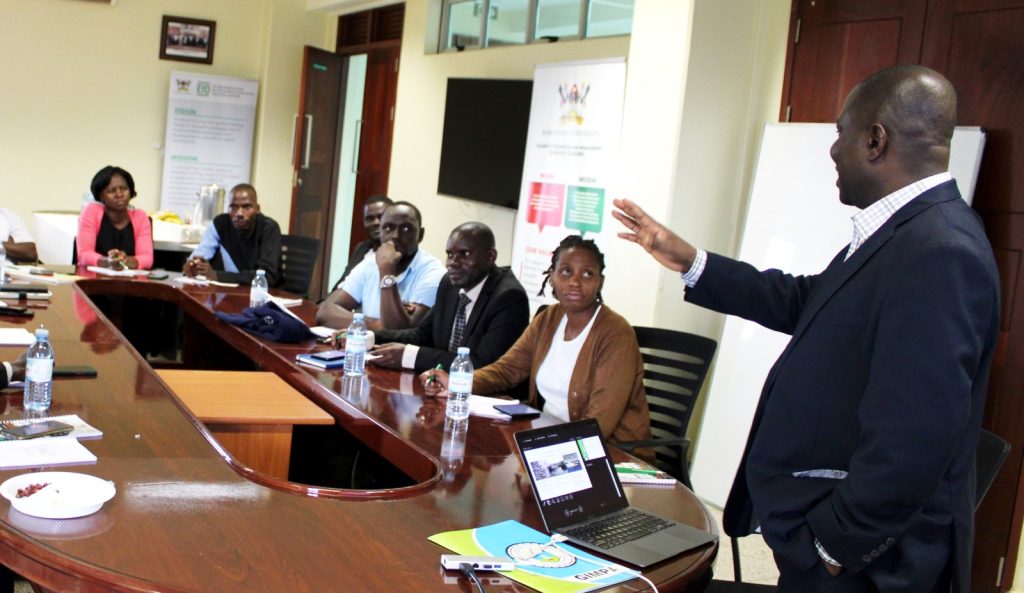
So, by bringing the biology and economics together one is able to paint a much better picture that is more appreciated by policy makers.
“The message is clear. We cannot manage what do not know. We cannot manage if we do not have some level of technical knowledge of how the fisheries operate and it is not sufficient to just have knowledge of the biology of fish the size, movement etc”, Wisdom stated.
Wisdom described Fisheries as an interesting area because it has so many dimensions that requires one to understand both the biology that is, how the fish grows, the thresholds in nature that you cannot harvest beyond a certain threshold or else the stock can collapse. And then you have to add the dimension of economics that when these fishes are harvested, they are harvested for economic and social reasons, as a source of food and also sold in the market that brings in the issue of cost, revenue and how does these influence the way we manage the resource.
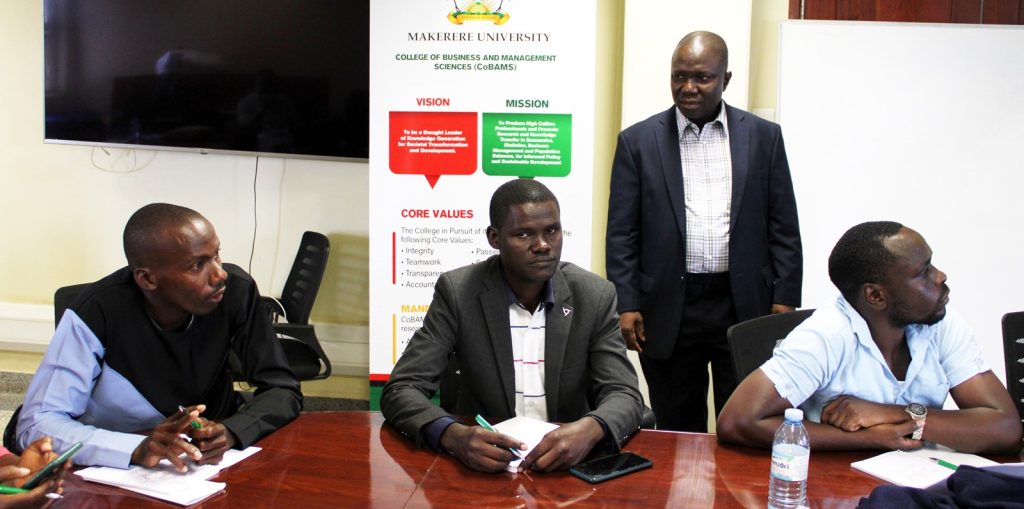
“By providing them this knowledge, they now have a better sense of how to bring the knowledge in the biology and economics together to distinguish between concepts such as maximum sustainable yield which is the maximum quantity of fish that we can catch on a yearly basis and maximum economic yield which is the quantity to catch to generate the highest economic benefit.
Usually, the maximum economic yield may be lower than the maximum sustainable yield which means to make a lot of money, or to make the highest possible profit from the fisheries, you may have to deploy a lesser level of effort than you are aiming to catch the maxim you can catch on a yearly basis for society to consume”. The professor explained.
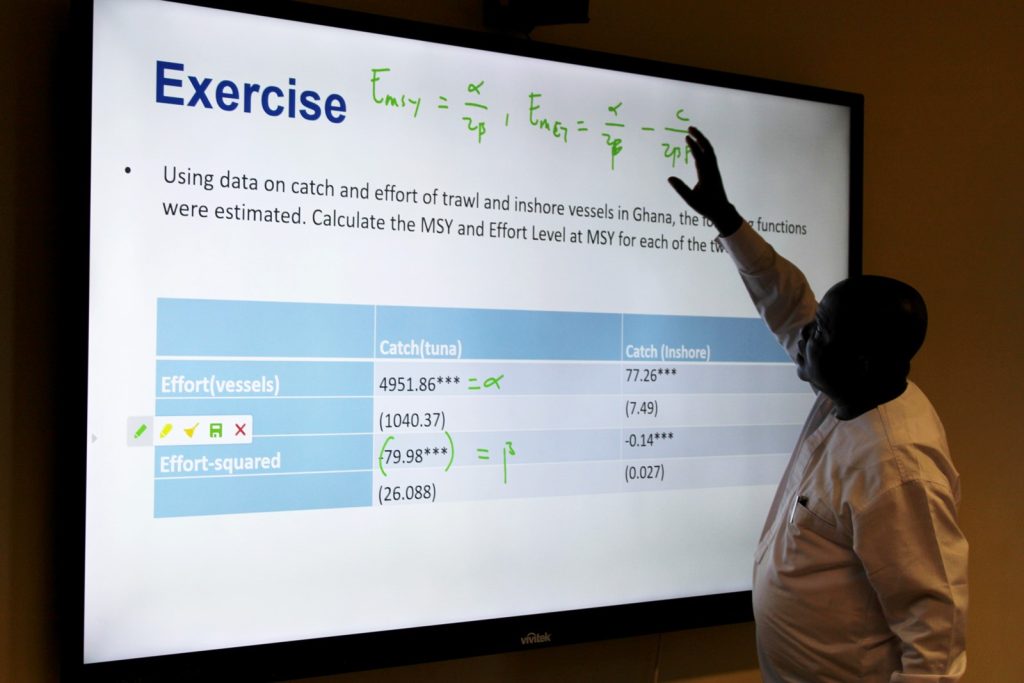
He further explained that sometimes the biology will recommend catching up to maxim yield but, the economics may recommend to restrict the catch because when you catch all, the profits you make is lower. If you reduce the catch at a lower level, other things have to come in, the social consideration, whether fishing for profit or other reason and how to incorporate those reasons in the basic model so as to appreciate things beyond economic gains or pure profits from economics.
Prof. Wisdom commended the participants for the active participation and ability to grasp the subject matter.
“I have been quite impressed. When I was coming, I knew they were going to be faculty graduate students etc. Only to see practitioners, people who were in the field doing fisheries work . I was wondering whether they are a cut for a course like this. But to my surprise, with all the concepts that I had to go through they were very comfortable.
“They showed the clear understanding of the concept and they were looking for more and when I gave exercises they did it clearly and gave me the answers. It has been quiet impressive and it shows that they have potential and the zeal, they have the interest and they will put what they have learnt to practice”. He appreciated.
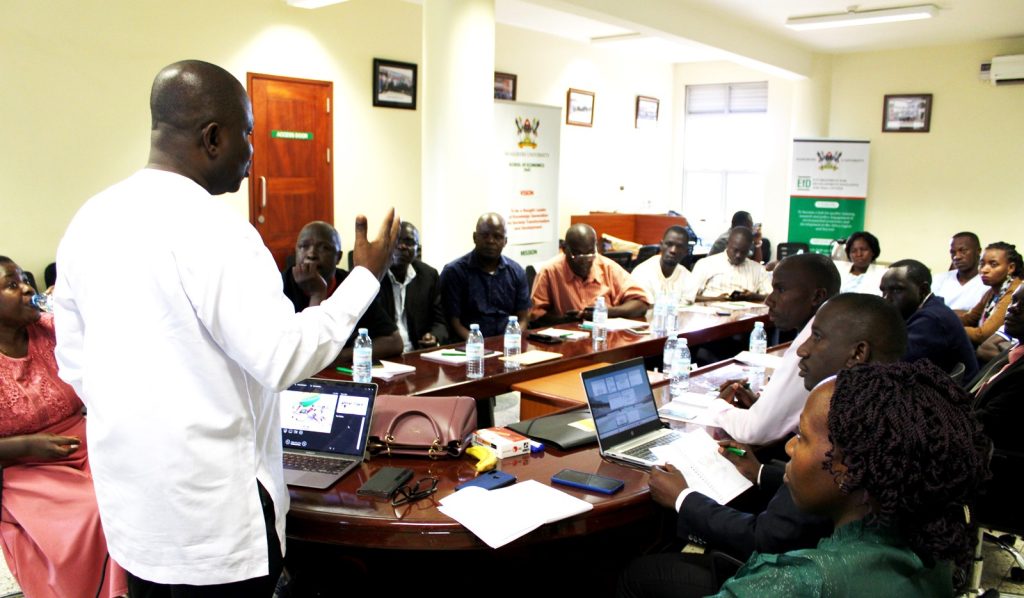
Prof. Wisdom encourage the university to continue with this type of collaboration adding that the EfD Network within the continent has a lot expertise and potential that can be harnessed for the benefit of individual countries and the continent.
“With this type of interaction we share knowledge and sometimes we tend to undervalue this knowledge that we share but I believe that if we have to change things for better for the continent, we have to begin to make use of our expertise and experiences in a platform like this.
Today, it is bio-economics of fisheries management and next time it should be something also relevant for the continent This was a very good positive initiative, I applaud the university and encourage them to continue” He said.
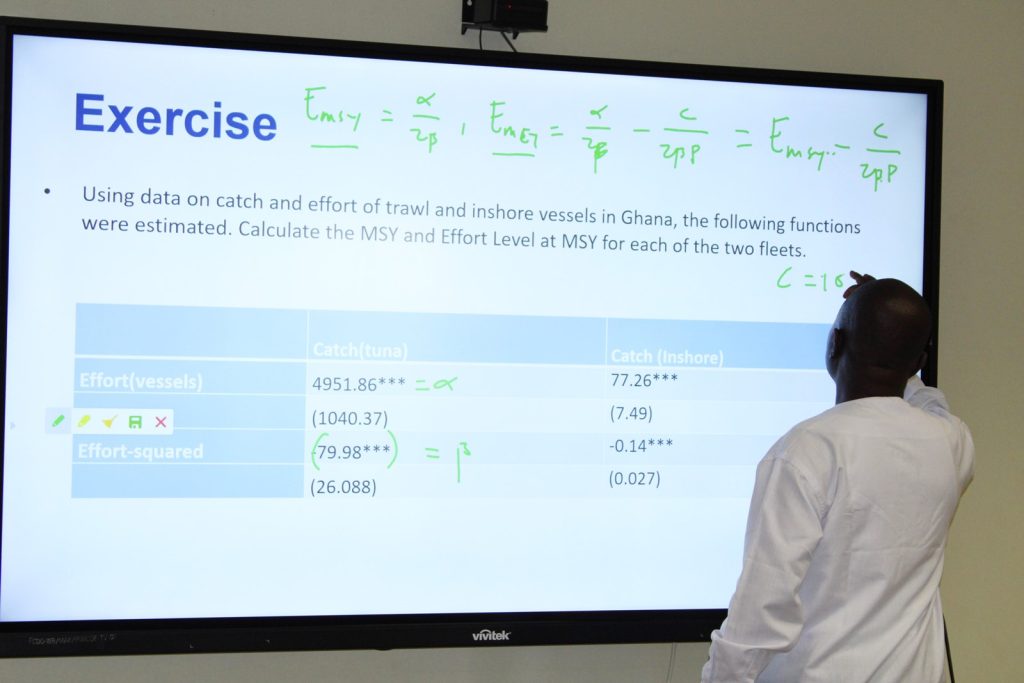
Namaganda Ruth, the Fisheries officer from Mukono District Local Government said:
“The training was very productive to me in that being on the frontline of managing the fisheries, it gives you a clear picture of how you can predict and advise fishermen as the primary beneficiaries of the resource. At the district level, when policies are being developed, we can guide the technical officers, our superiors and politicians on how to effectively manage the resources.
If possible, the centre should organize more training in other aspects of natural resources because management is so diverse”.
Maganda Moses is the Senior Environmental Officer from Jinja District Local Government. He said:
“The training was very good. Much of what we are missing in government is attaching an economic value to what we do. We do not have those basics of making those estimates and calculations. But at least now, I have an idea of what I can do in case they need such information or data. The training was on how we can collect data on a particular resource of the fisheries sector.
So it was a very good training only that the training period of two days was inadequate and probably and we need further training in that, and even those who did not benefit from this, it would be good to introduce them to such training so that they are equipped with skills of generating data in the fisheries sector”.
Importance of the Fisheries sector
Fisheries according to Prof. Wisdom plays a key role in our social economic social being world over and on the continent. In Ghana, for example about 60% of the animal protein needed comes from fisheries and this because the other types of animal protein are either unavailable, scarce or expensive. So a lot of people derive that requirement from fish.
The same applies in Uganda, where people would have loved to eat fish but because fish is not readily available. So that fact that we have less than 10% of animal protein from fish, is not that people do not like fish but because it is outside the reach of the majority of people.
On the other hand, Wisdom asserts that fisheries are resources that if properly managed they can last forever but then these fisheries are over capitalized and over fished in Ghana and Uganda. So, the fisheries sector is extremely important for job create employing a huge number of the population, giving animal protein requirement,.
“Fisheries products provides foreign exchange because a lot of money is spent through foreign exchange in Uganda through Nile perch processing and export .So the sector is critical and beyond just being important even the value alone to the fish that is harvested is about 2.1% of the Ugandan GDP and that is why it was important for the government officials to be retooled”. Prof. Wisdom explained.
Key issues affecting the fisheries sector
Prof. Wisdom noted that the fisheries sector both in Ghana and Uganda are troubled with so many challenges . One of those is over-capitalization where there are too many vessels, canoes, boats and that has to be reduced. There is also lack of proper management and so much competition for stocks from different sub-sectors that is leading to over exploitation of stock.
There is use of all sorts of destructive methods because there is competition for stock as fisher men tend to think that they can use other illegal means to be able to catch more fish. Some use explosive dynamites, small size nets, small filament nets which are all over the places posing a serious challenge within the industry.
But most importantly there is lack of knowledge and capacity to be able to appreciate the impact of all problems on the stocks, harvest, profits and gains that generated from these resources.
Key policy interventions Uganda can emulate from Ghana
From the discussions and interactions with the fisheries experts, Prof. Wisdom noted that Ghana and Uganda it appears have similar challenges including over capacity in the fishing activities taking place, low political and foreign interests in the fisheries sector with foreigners coming in to compete with locals.
In Ghana, Wisdom said, there are areas dedicated to small scale fishing and the aim is to secure livelihoods of poor people living along coastal communities, with specific marked spaces that are reserved for local fishermen so that they can have some catch.
Uganda can learn that Ghana has demarcated where and what locals and foreigners can fish.
“We should also priorities local fishermen viz-a-viz foreign vessels and if possible impose enough taxes on the foreign vessels and use those taxes to take care of local fishermen. We realized that we can gain efficiency by allowing foreign vessels to fish species that local people find difficult to catch and make sure we get taxes that can support local fishing industry so that local fishermen are not denied their basic livelihoods.
Ghana according Prof. Wisdom has clauses and policies where within specific areas fishermen are not supposed to fish to allow the stocks to recover. From the discussion with the fisheries officials, Uganda also did it once or twice but has not done it for some time. It is time for Uganda to revisit and try to implement this policies because there are clear ecological benefits and improvement in catches of fisher folks.
Although Uganda has marine police like in Ghana, Ghana in addition has other established local institutions. There is what is called, “landing beach enforcement committee” where local people constitute themselves into enforcement units and they are able to control some of the illegal practices about fisher folks that Uganda can learn from.
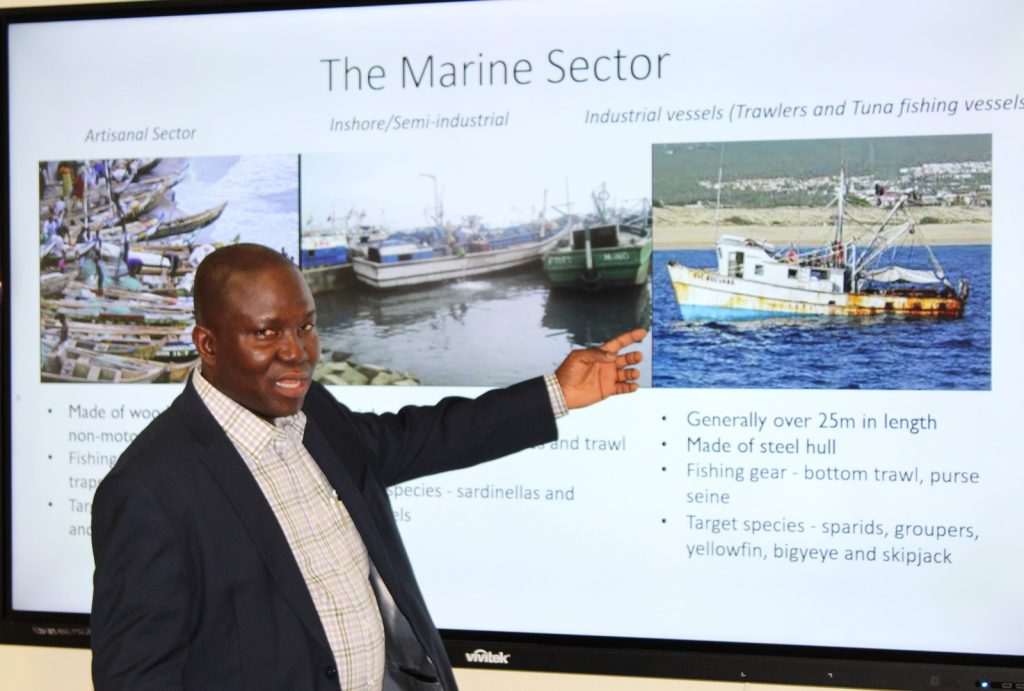
Ghana as explained by Prof. Wisdom has a strong collaboration between research, academia and policy makers working at the ministries and then, the stakeholders the fisher folks and civil society organizations. That platform he advised should be encouraged to be created so that it will not be one sided decision, it will be a platform where researchers, fisher folks, civil society organizations and the ministries can always come together to discuss issues of common interest.
Ghana has also established the scientific and technical committee of the Fisheries commission compromising stakeholders such as people from academia who identify and investigate issues for discussion and advise the commission to implement issues observed and Uganda can learn from this.
In Ghana’s fishing communities, there is what they call, “the fish queens or mummies”. These are women who take key roles in post-harvest activities and the fish queen is the leader of women engaged in fish processing and trading and typically, they are the ones who determine the pricing of fish. When the fisher folks come from the sea, they observe the catches of a few vessels like the first three canoes and are able to tell what the supply of the day would be and that guides them to determine the price per measure would be and they announce that price and every fisherman that comes has to sell at that price. So they play that key role of determining the price of fish and all fishermen on that day obey that particular price.
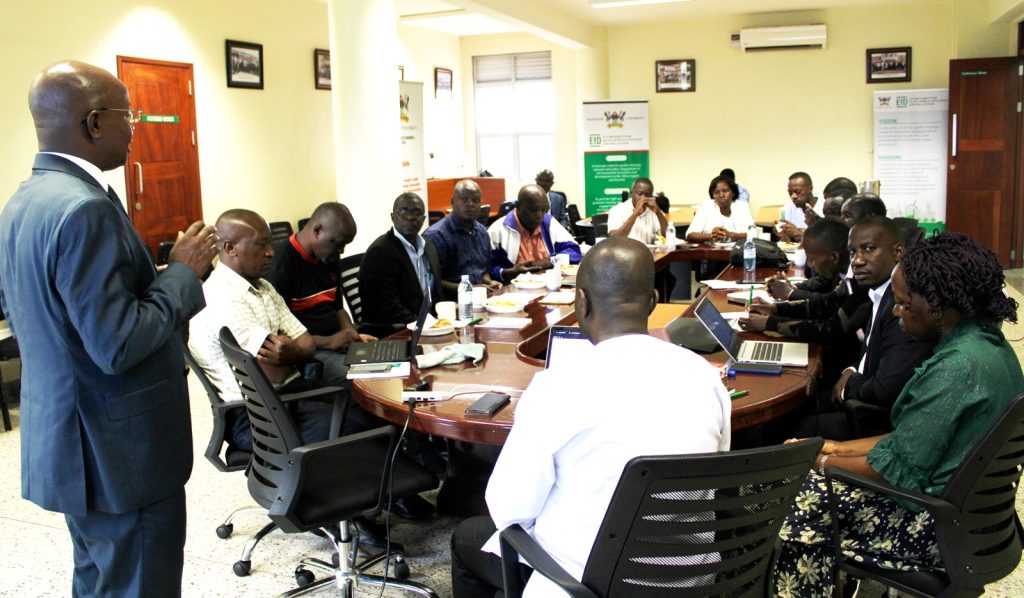
In Ghana, the fisheries industry especially the artisanal vessels are supposed to be Ghanaian. The semi-industrial vessels are also supposed to be owned by Ghanaians and including industrial trawlers are also supposed to be owned by Ghanaians. But because the Ghanaian don’t have the capacity to own the trawlers, they go into a hire purchase agreement and the agreement tends to be rooted in corruption. Those who claim to have hired the vessels do it on behalf of foreigners who disguise as experts on how to manage vessels but are the true beneficiaries. At the end of the day they end up catching the fish they are not supposed to and make a lot of money. So there are Vessel Monitoring Systems that are installed on vessels to monitor and track them and to know where exactly they are operating.
Prof. Wisdom says he has been recommending installation of video devices so that the activities can be watched at a distance so that they can be regulated better and avoid exploitation. By installing video devices on boats and vessels that target big species like the Nile perch to monitor them, the benefits cost will be 21 to 1.
Remarks by the Director EfD-Mak centre
Prof. Edward Bbaale welcomed participants to Makarere University and the EfD Centre. In a special way, Prof. Bbaale thanked the visiting professor for moving all the way from Ghana to come and facilitate the workshop.
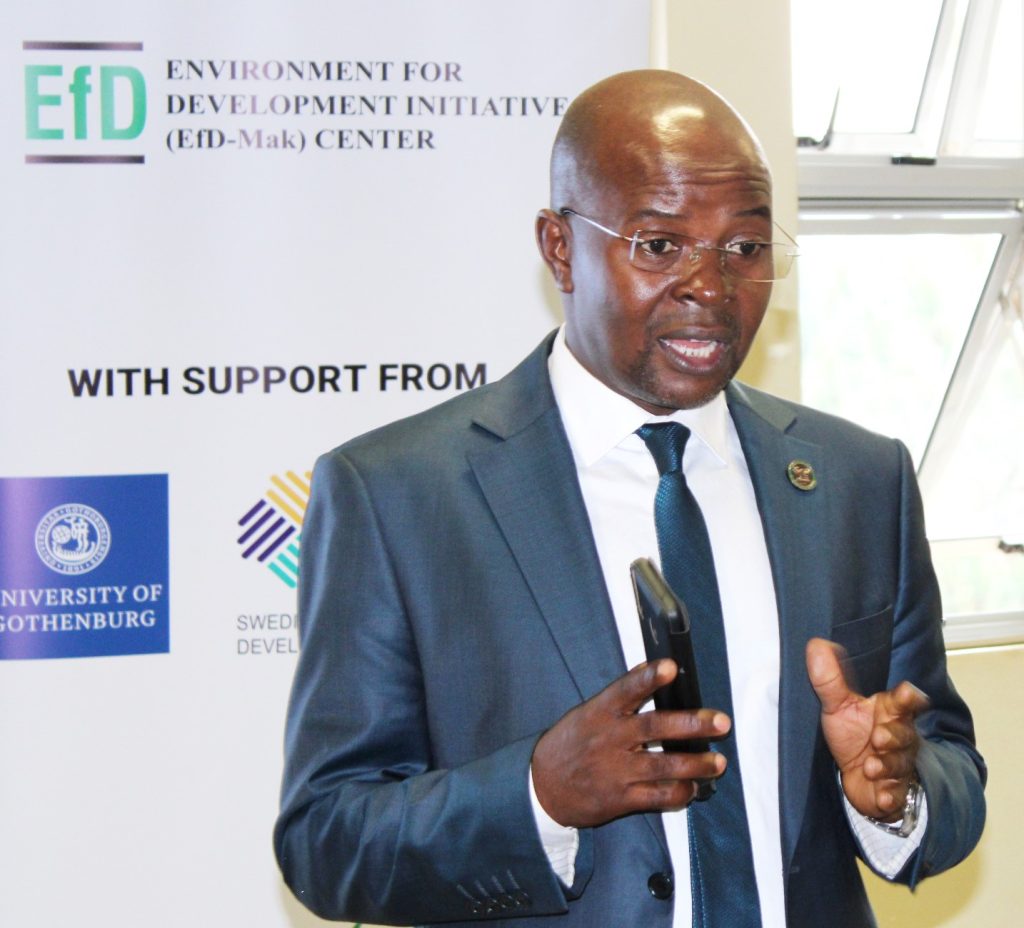
Bbaale also extended appreciation to the university management and the Principal CoBAMS for facilitating and overseeing the center’s operations.
He thanked participants for making time to come to Makerere saying, they were selected because they were instrumental in their duty station assuring them that the training will focus on what they do at their places of work.
Prof. Bbaale assured participants that none of the participants was selected by Makerere but letters were write to their bosses who selected them. He said by the end of the training, they would have changed the way they perceived things and the way they would want to go deeper into bio economics of fisheries management.
He assured participants that the facilitator is one of the best environmental economists in Africa.
“We have a person that has invested a lot of time in the work for which he is sharing with us. He has had a lot of experience working with international organizations before he came back to work with a university in Ghana and also to established the EfD centre in Ghana”
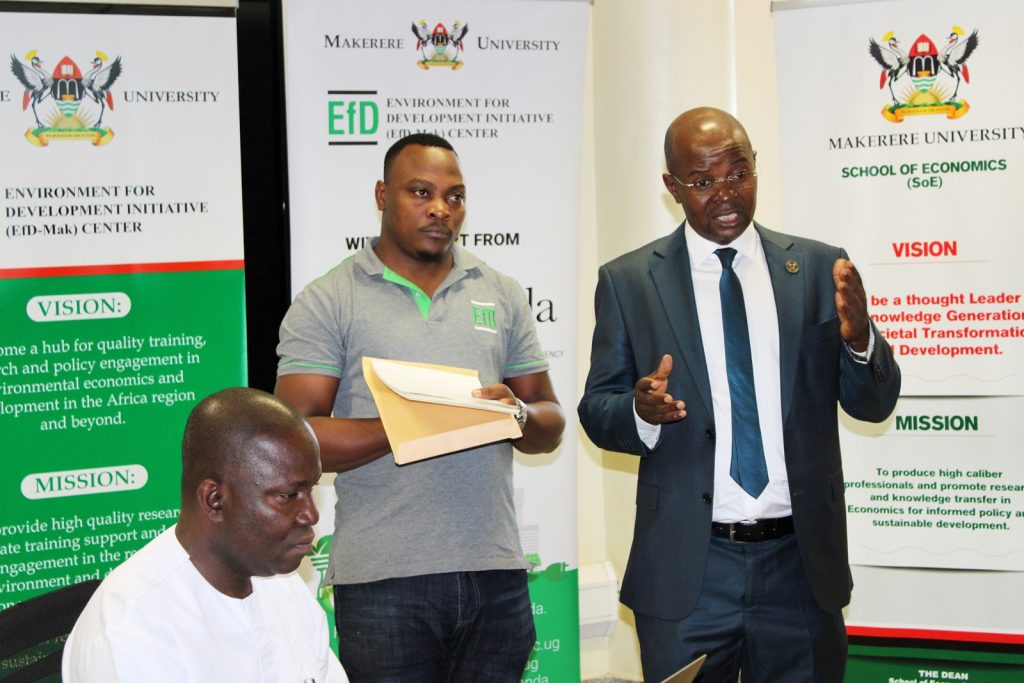
He thanked Prof. Wisdom for creating this collaboration saying, the center is developing capacity in different areas and would be glad to visit Ghana and share the experiences.
“Uganda is an agricultural country and the government officers you see here are very few compared to the need that we have, that means that may be another time we shall invite you for another cohort because here, are people from the ministry of agriculture, environmental police, and colleagues from different local governments from different districts. It means that to have lasting impact we must require that we have several rounds of this nature”, Bbaale added.
Prof. Wisdom Akpalu
Prof. Wisdom is the Centre Director of EfD Ghana but also the member of the coordination committee of the entire EfD Network and member of the capacity development committee of the EfD Network but importantly, the leader of the Blue resources for development- a collaborative program within the EfD Network where fisheries is. He obtained a PhD in economics from the University of Gothenburg Sweden 2006. He is currently Dean, of the School of Research and Graduate Studies at the Ghana Institute of Management and Public Administration. Prof Wisdom is also the President of the African Association of Environmental and Resource Economists in Africa. His research focuses on social economics of natural resource management including fisheries management, economics of crime and punishment and economic institutions.
You may like
-


Simplicity, Service & Scholarship: Hallmarks of Professor Livingstone Luboobi’s Legacy
-


EfD-Mak Holds 2nd Advisory Board Meeting: Charts Path for Growth
-


Public University Legal and Accounting Officers Trained on Governance and Compliance
-
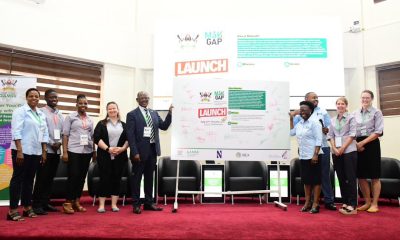

Launching The MakGAP
-


Celebrating the Life of Prof. Livingstone Sserwadda Luboobi
-


Fare Thee Well Prof. Luboobi
Business & Management
EfD-Mak Holds 2nd Advisory Board Meeting: Charts Path for Growth
Published
13 hours agoon
July 18, 2025By
Jane Anyango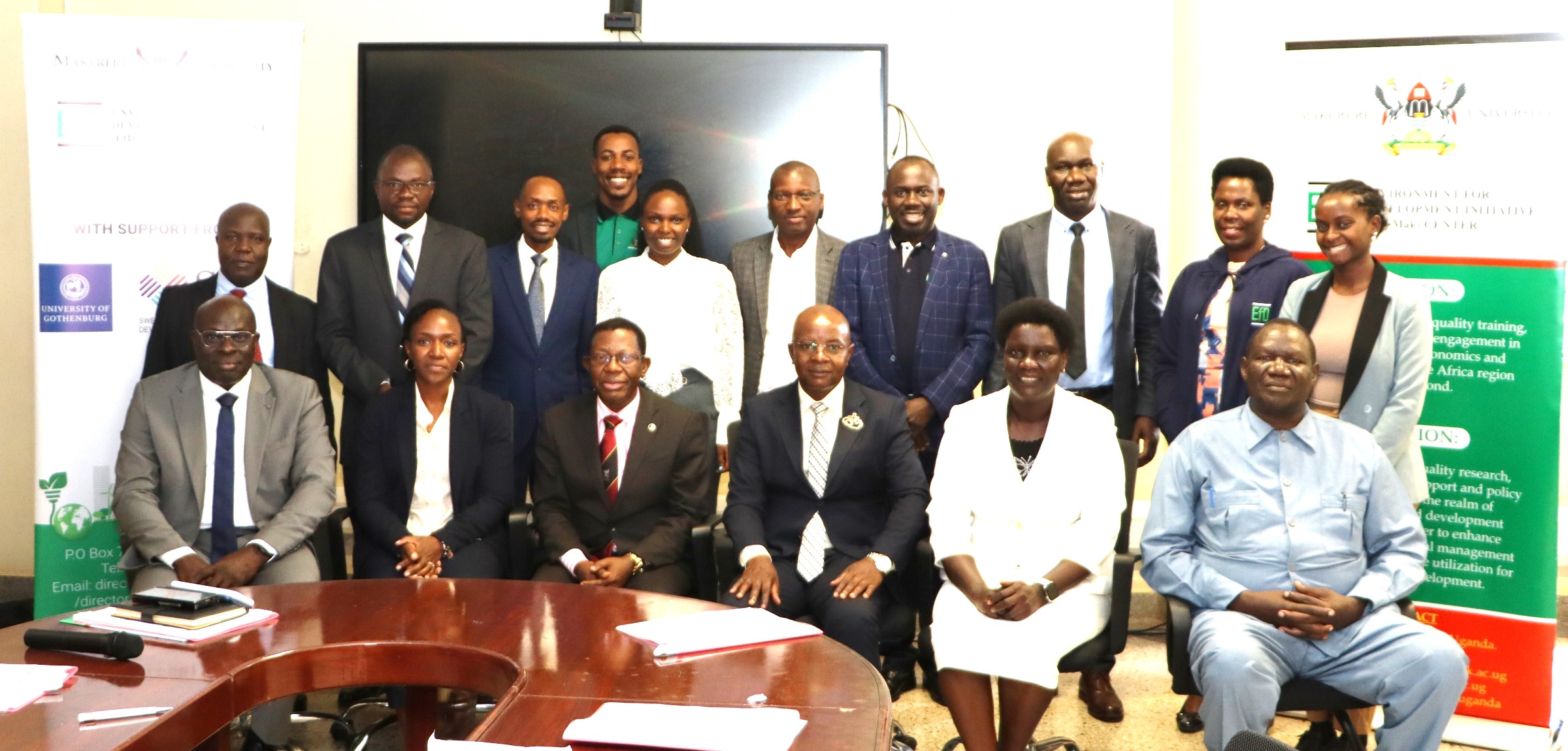
KAMPALA, Uganda | July 16, 2025. The Director of the Environment for Development Initiative–Makerere University Centre (EfD-Mak), Prof. Edward Bbaale, outlined key achievements, challenges, and future plans during the 2nd Advisory Board Meeting held at Makerere University with members calling for expanded scope and sustainable funding for the center’s activities.
The Advisory Board comprises 13 members drawn from Makerere University, government ministries and agencies, civil society, and the private sector. The Board’s role is to provide oversight and strategic guidance to EfD-Mak.
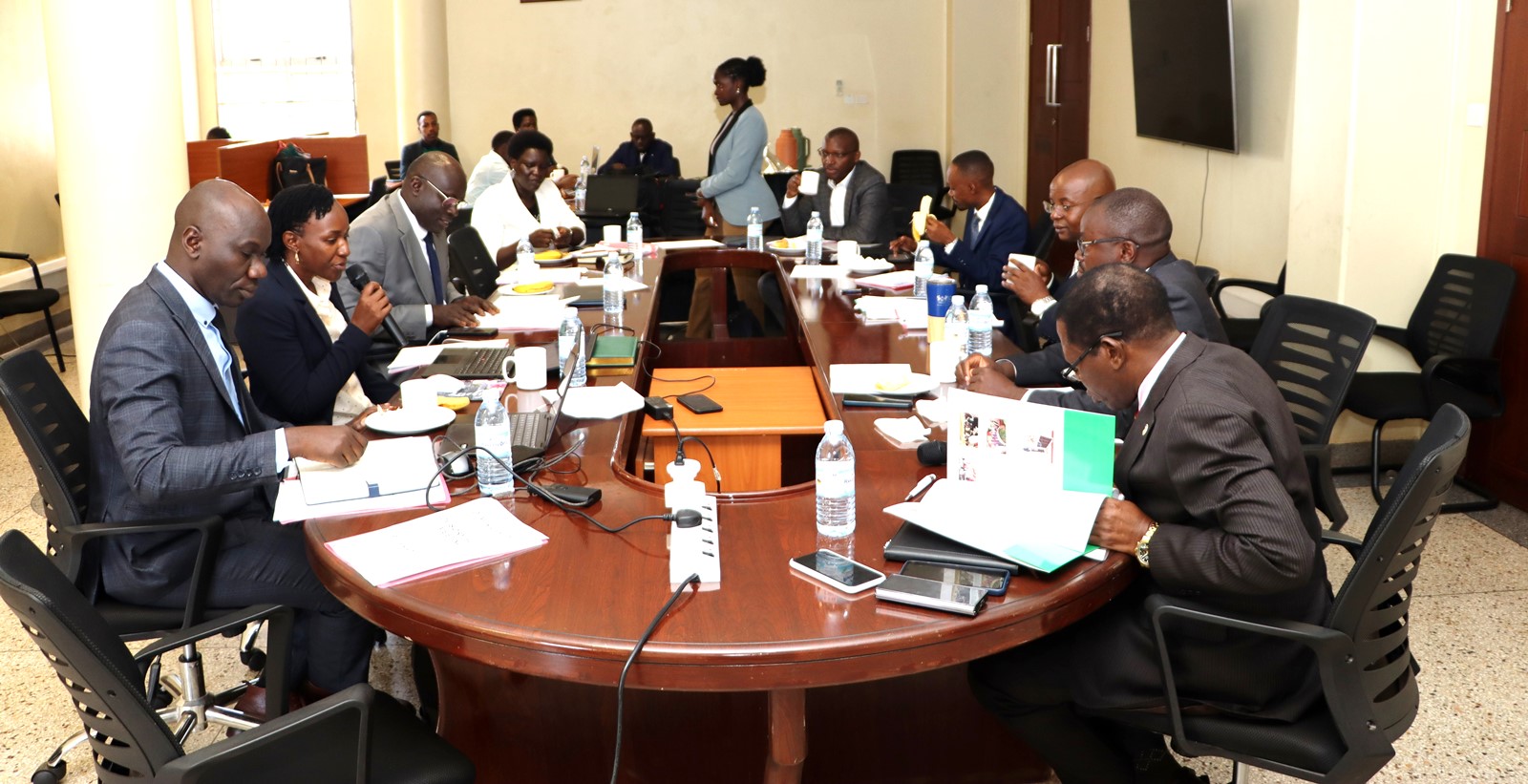
The EfD-Mak Centre is part of the global Environment for Development (EfD) network, comprising 15 research centers worldwide. It aims to promote evidence-based environmental policy through interdisciplinary research, academic training, and stakeholder engagement.
Addressing the board, Prof. Bbaale highlighted the center’s progress since its inception in 2019, including impactful policy engagement, capacity-building programs, and pioneering research in environmental economics.

“Our journey started in Vietnam when Makerere University was formally admitted into the EfD network. Since then, we’ve worked toward a mission of promoting inclusive growth and environmental sustainability,” said Prof. Bbaale.
Chaired by Prof. Buyinza Mukadasi, Makerere’s Academic Registrar and Acting Deputy Vice Chancellor (Academic Affairs), the meeting also welcomed the new Deputy Director of EfD-Mak, Dr. Alice Turinawe, who replaces Prof. Johnny Mugisha.
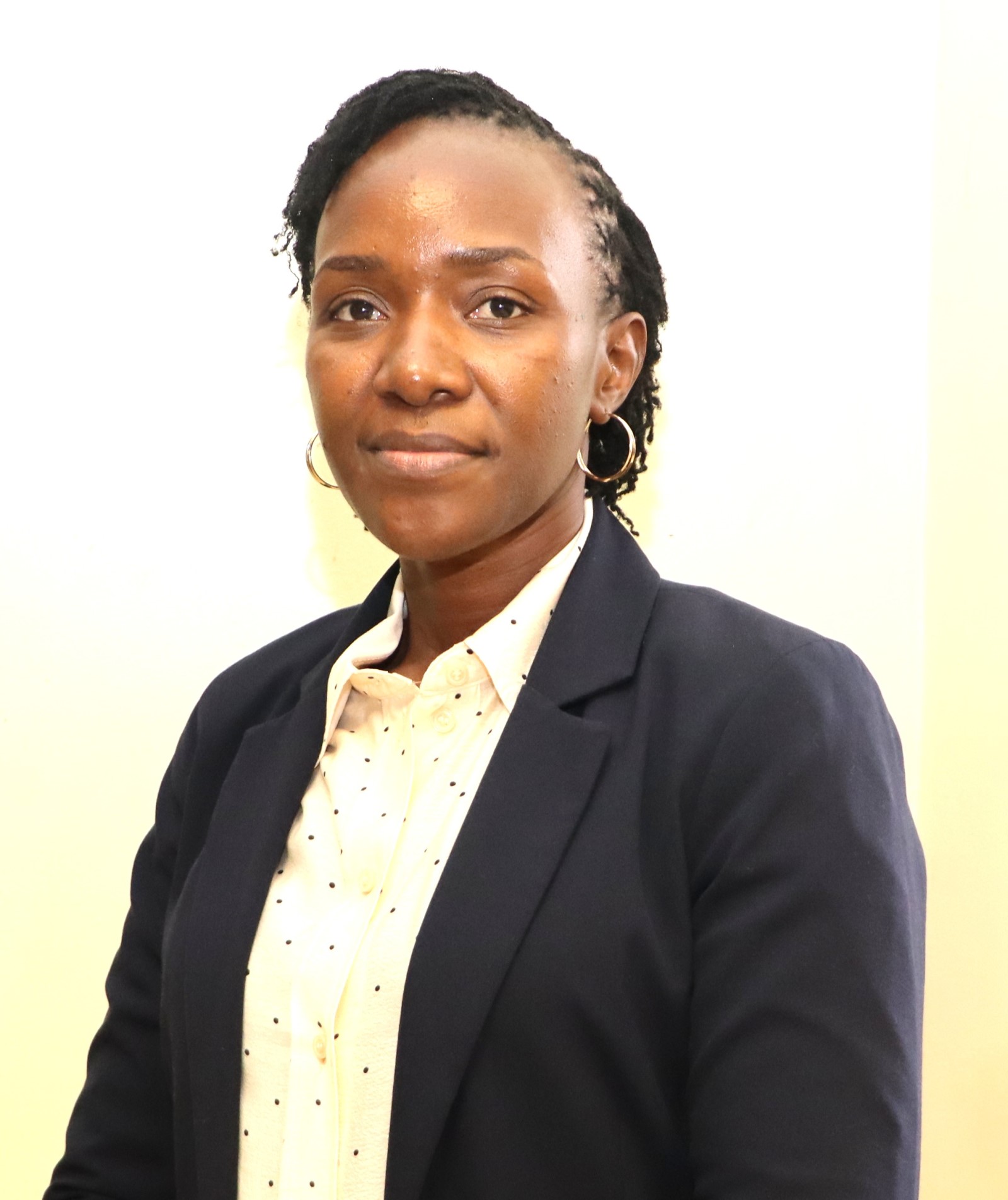
Prof. Bbaale reported significant growth in research output, including over 150 publications and collaborations with national and international bodies such as the National Environment Management Authority (NEMA), the National Planning Authority, and the Ministry of Finance. The center is currently implementing projects on forestry, climate finance, and sustainable agriculture with partners across Uganda and the wider EfD global network.
The center’s interdisciplinary approach, drawing researchers from the Colleges of Business and Agricultural Sciences, was praised for its alignment with Makerere’s research strategy.

Notably, the center has launched a new Master’s in Economic Investment Modeling, designed to integrate climate variables and natural capital into macroeconomic frameworks. “This is a timely addition as the world looks for tools to understand the economic impact of climate change,” said Bbaale.
The center has intensified policy engagements through dialogues and training programs for government officials, focusing on environmental valuation, energy transitions, and macroeconomic modeling. The Inclusive Green Economy (IGE) program, funded by SIDA, has trained senior policymakers across East Africa on sustainable finance and green transition strategies.
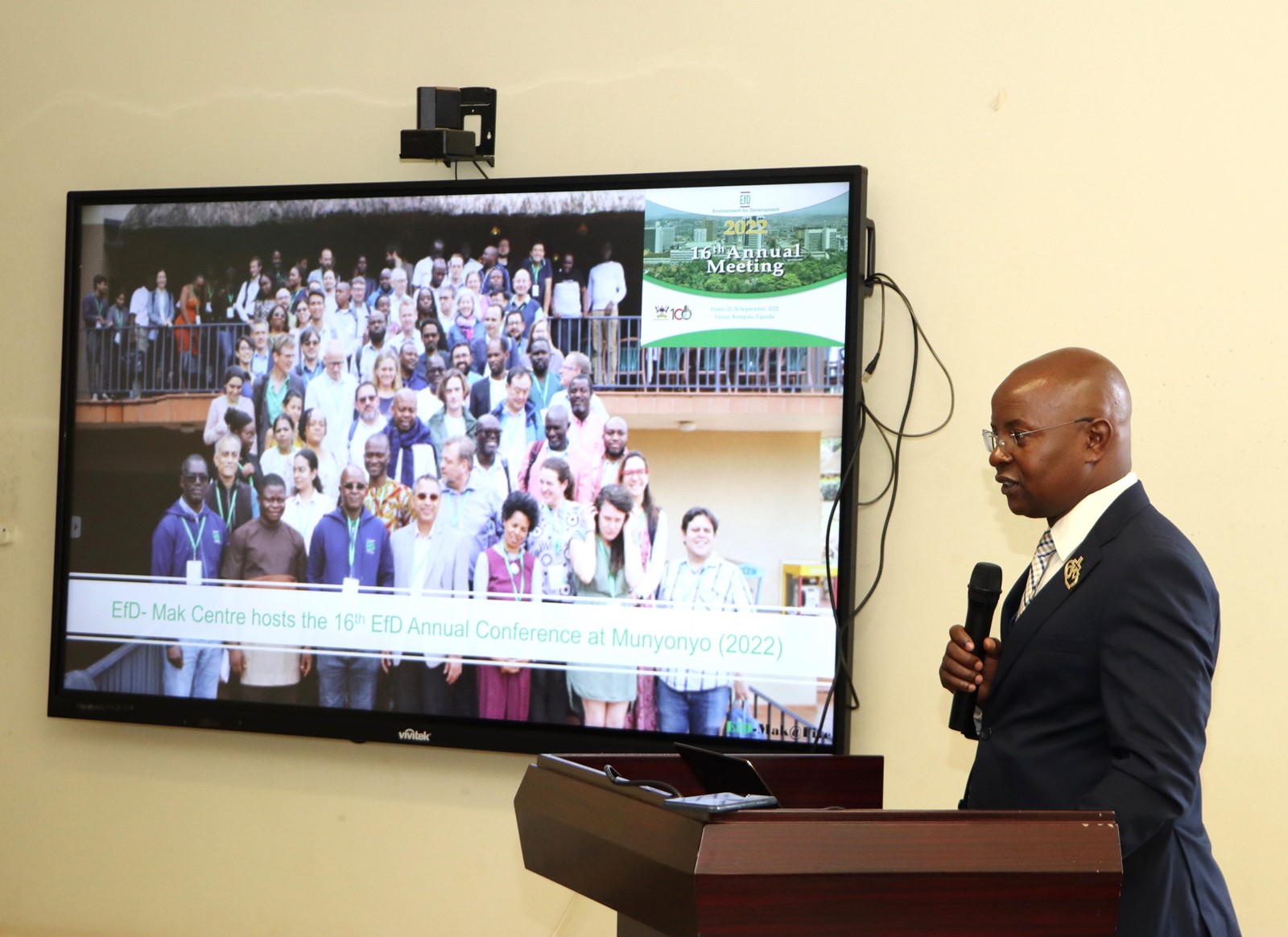
EfD-Mak also played a role in shaping Uganda’s National Development Plan IV, with several fellows contributing to mainstreaming environmental concerns such as clean cooking and e-mobility.
“We were proud to be recognized as a runner-up globally for policy influence on clean cooking,” Bbaale noted, adding that Makerere’s visibility within the EfD network and international platforms continues to grow.

Despite the progress, Prof. Bbaale cautioned against over-reliance on a single funder, the Swedish International Development Cooperation Agency (SIDA), stating that diversified funding is essential for sustainability.
“While SIDA remains our main supporter, we recognize that this model is not sustainable in the long term,” he said, urging the board to support efforts to secure institutional status for the center within the university’s research policy framework.
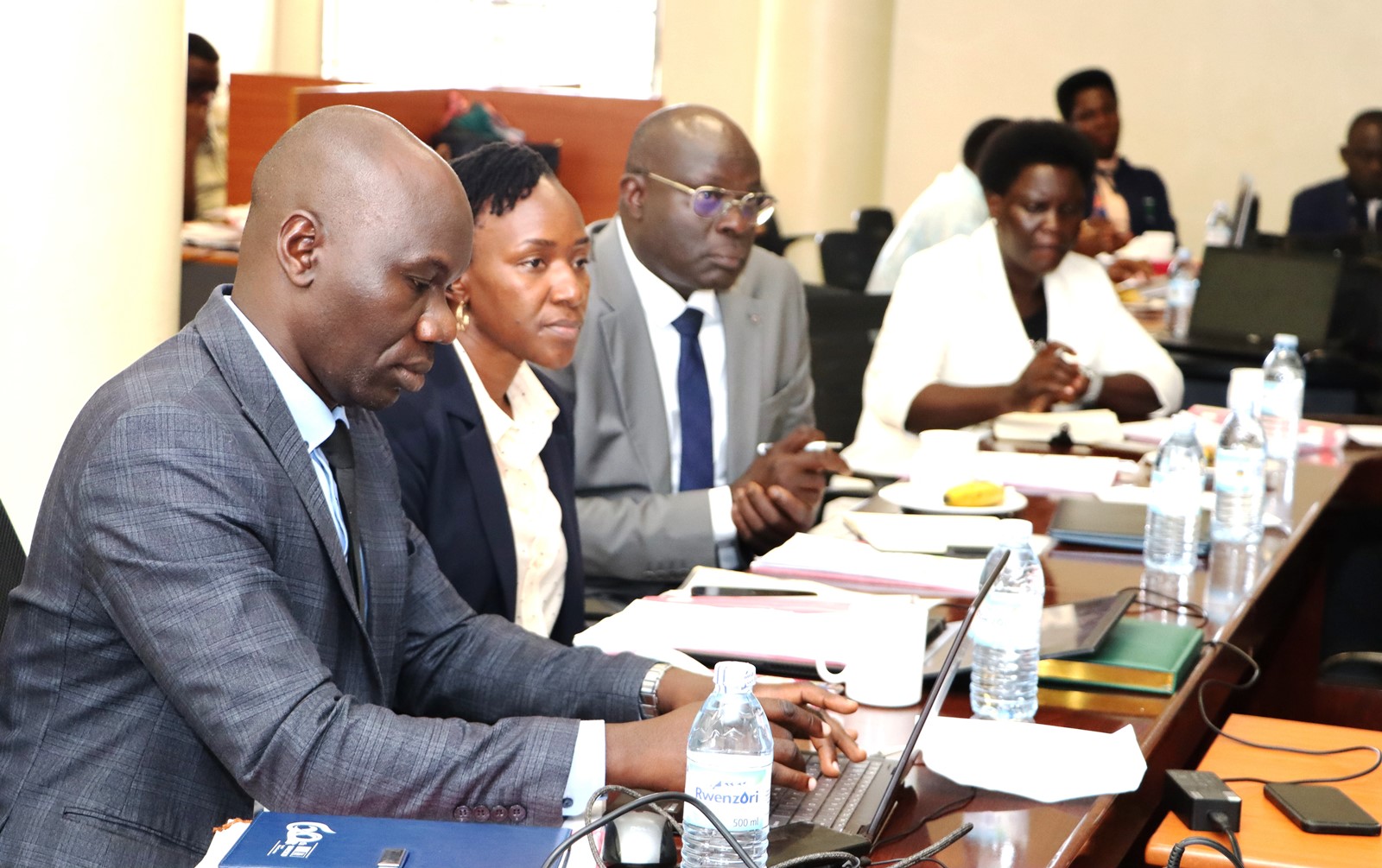
For 2025, EfD-Mak will focus on climate-smart agriculture as a thematic policy dialogue and strengthen its footprint in local government engagement. A grant targeting environmental valuation at the local level and a new project on macroeconomic modeling for climate resilience are expected to launch.
Prof. Bbaale also cited a clean audit and positive external evaluation as indicators of the center’s strong governance and operational efficiency.

Quoting Pope Francis, he closed with a warning on the urgency of environmental action: “God always forgives. Men sometimes forgive. But nature never forgives.”
Board Chairperson Calls for Stronger Alignment with SDGs and Inclusivity in Research Programs
Prof. Buyinza Mukadasi, Chairperson of the Advisory Board called for deeper integration of the Sustainable Development Goals (SDGs), inclusivity, and results-based reporting in the Centre’s research and academic programs.
Prof. Buyinza congratulated the EfD-Mak team led by Director Prof. Edward Bbaale on their notable achievements across academic training, research, and policy engagement.
“We want to congratulate you and your entire team for all the academic and impact achievements you have made,” Prof. Buyinza said. “You can clearly see the success at the academic training level, at the research level, and policy engagement. These are strong pillars of your program.”
However, the Chairperson emphasized the need to explicitly link the Centre’s work to Uganda’s national development agenda and global frameworks.
“What we want to see more of in future presentations is a clear connection to the Sustainable Development Goals,” he said. “Any investment going into research or human capital development must be traceable to the SDGs and the National Development Plan. This is essential, especially when responding to expectations from institutions like the National Planning Authority.”
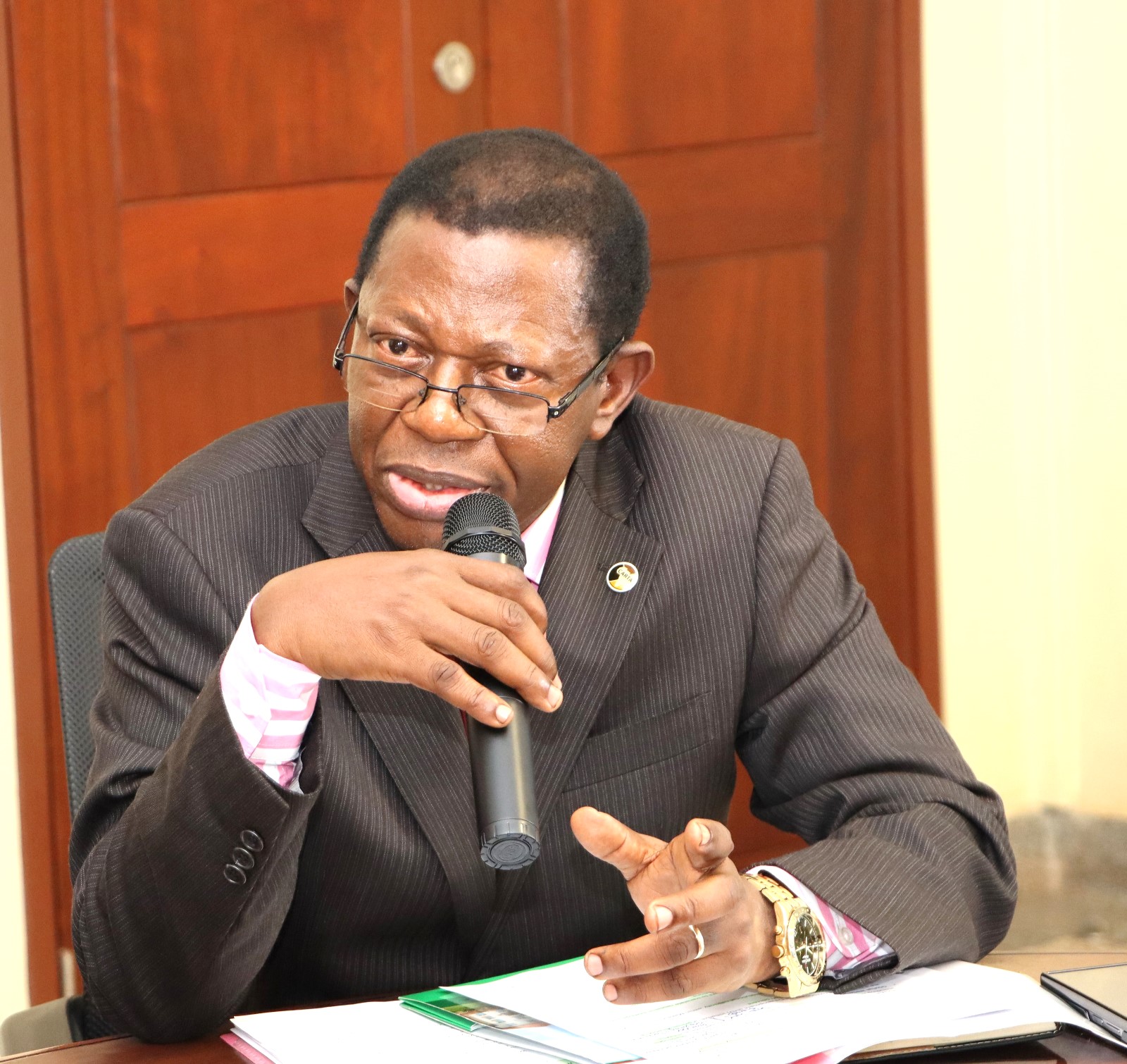
Prof. Buyinza also urged the Centre to enhance inclusivity in its fellowship and research programs by targeting underrepresented groups, including students and researchers with special needs.
“You are doing well with your agenda and research priorities, but now it is time to move further toward inclusivity,” he said. “Let’s also see data on gender representation and the involvement of individuals with special needs. That would reflect equitable capacity development.”
He applauded the Centre’s results-based management approach and its focus on tangible outcomes. “I’m happy you did not dwell on challenges,” he added. “It shows maturity and strategic focus.”
Prof. Buyinza concluded by inviting reflections from other board members on areas where the Centre could improve, encouraging a collaborative approach to continuous development.
Board Members Call for Stronger Private Sector Links, Local Engagement, and Global Positioning for EfD-Mak Centre
Members of the Advisory Board for the Environment for Development Initiative praised the Centre’s achievements in research and policy influence but called for greater integration with the private sector, deeper engagement with local development initiatives, and enhanced visibility on the global stage.
Several board members shared constructive feedback following a presentation by the Centre’s Director, Prof. Edward Bbaale, outlining the Centre’s milestones and strategic direction.
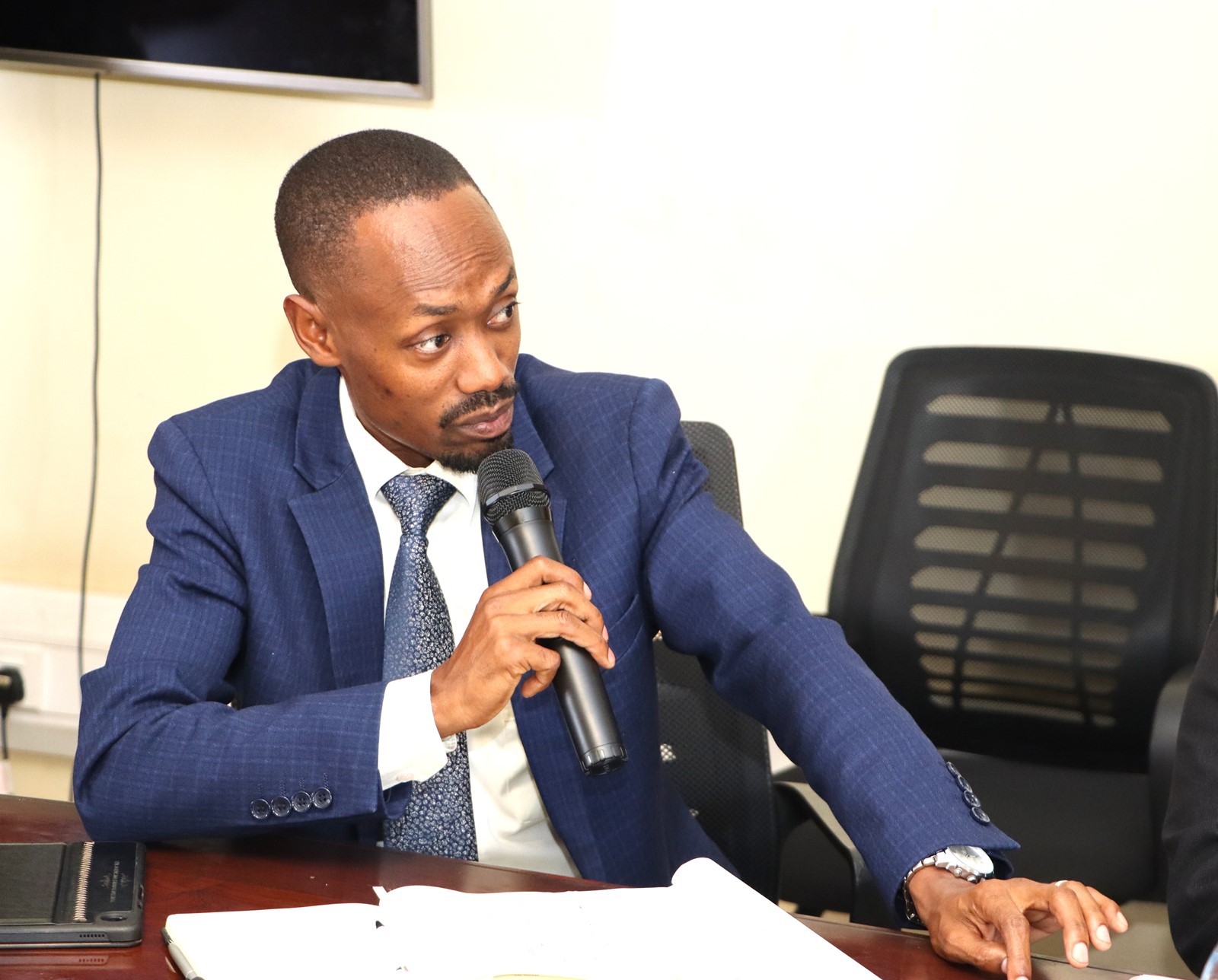
Julius Byaruhanga representing the Private Sector Foundation Uganda (PSFU), applauded the Centre for bridging the gap between academia and policymaking but urged for a similar approach with the private sector.
“Much of the research generated in academia doesn’t speak to private sector investment,” Byaruhanga said. “We need partnerships that show how climate and energy research can guide private sector financing, especially around energy efficiency.”
He proposed collaboration between EfD-Mak and PSFU in energy efficiency and policy advocacy, noting PSFU’s experience with several donor-funded projects and its role as the apex body influencing government policy on behalf of the business community.
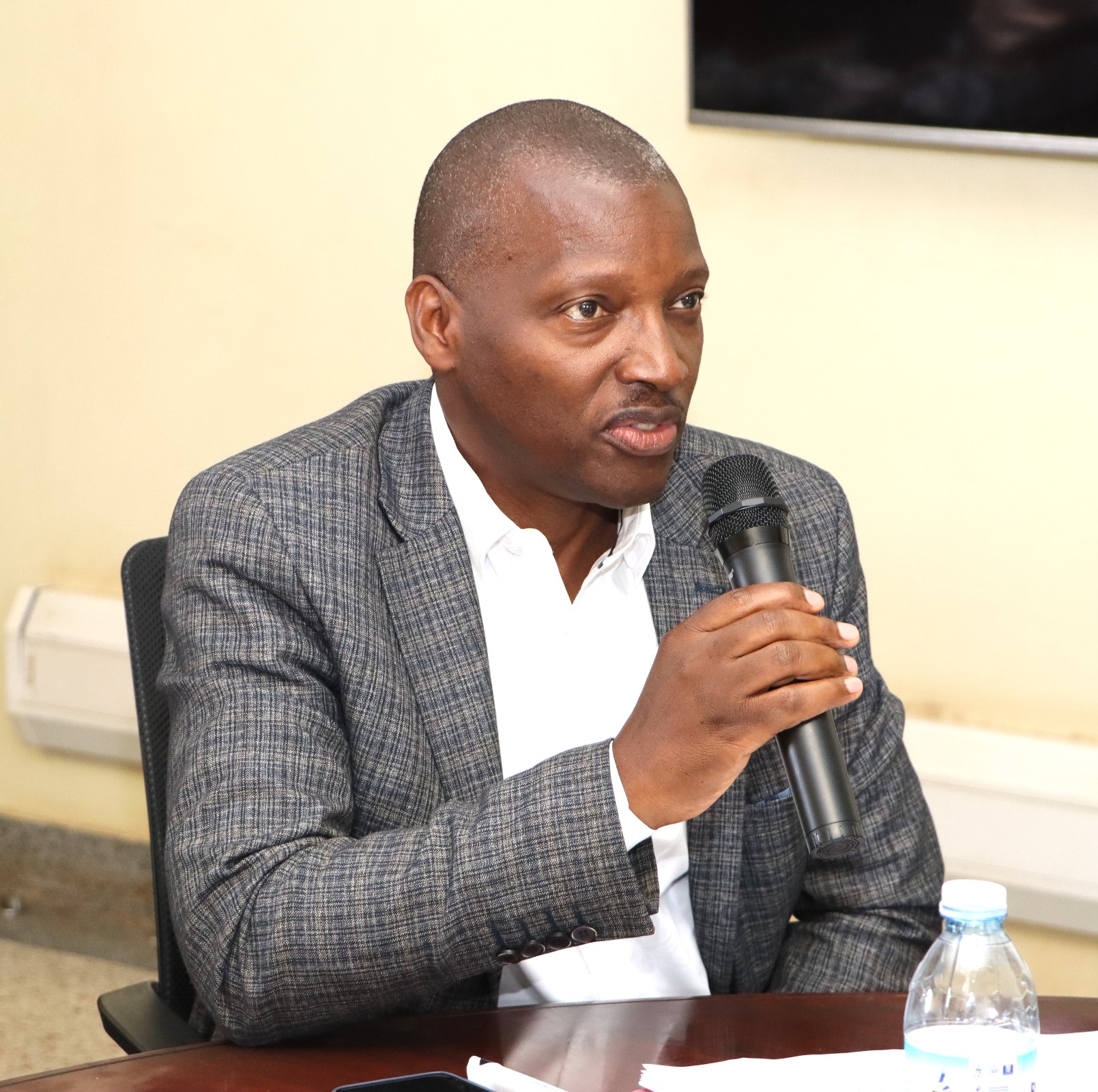
Onesmus Mugyenyi, from acivil society organisation, emphasized the need for coordination among actors working on similar thematic issues, especially in policy advocacy.
“When we don’t coordinate, we duplicate efforts and end up with incomplete or stuck projects,” Mugyenyi said. “Mapping stakeholders and integrating practitioners into training would greatly enhance both policy impact and student learning.”
He also stressed sustainability and advised leveraging the Board’s networks to support resource diversification and long-term institutionalisation of the Centre’s initiatives.
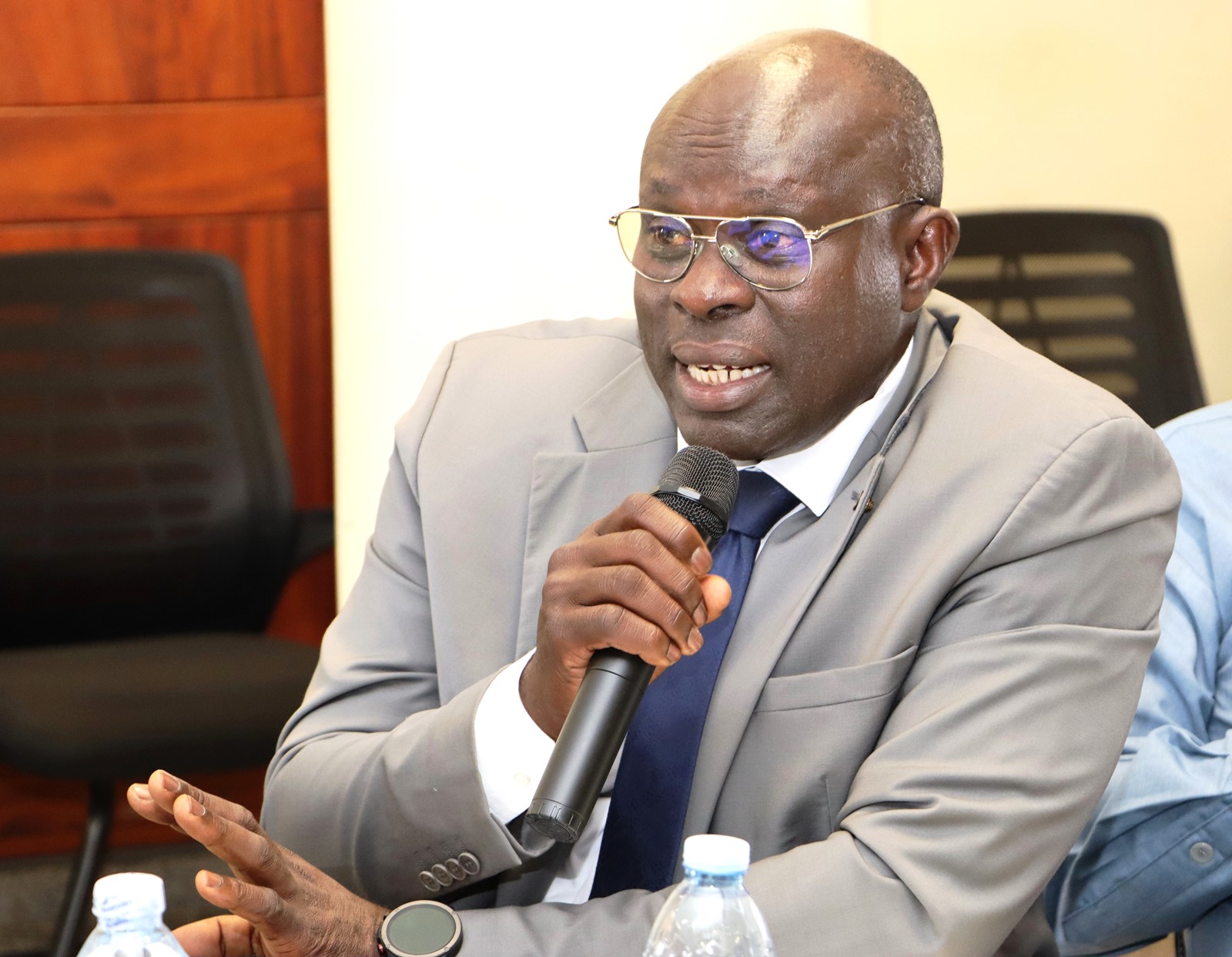
Dr. Sam Mugume, representing the Ministry of Finance, recognized the Centre’s contribution to national capacity building, particularly in climate finance and macroeconomic modeling.
“You’re doing important work,” Mugume said. “But we now need to scale up and integrate your training and modeling capacity into broader macroeconomic planning for climate resilience, both nationally and at the African continental level.”
He noted the Ministry’s current engagement with a coalition of African finance ministers on climate action, urging the Centre to establish itself as a key academic partner in that process.
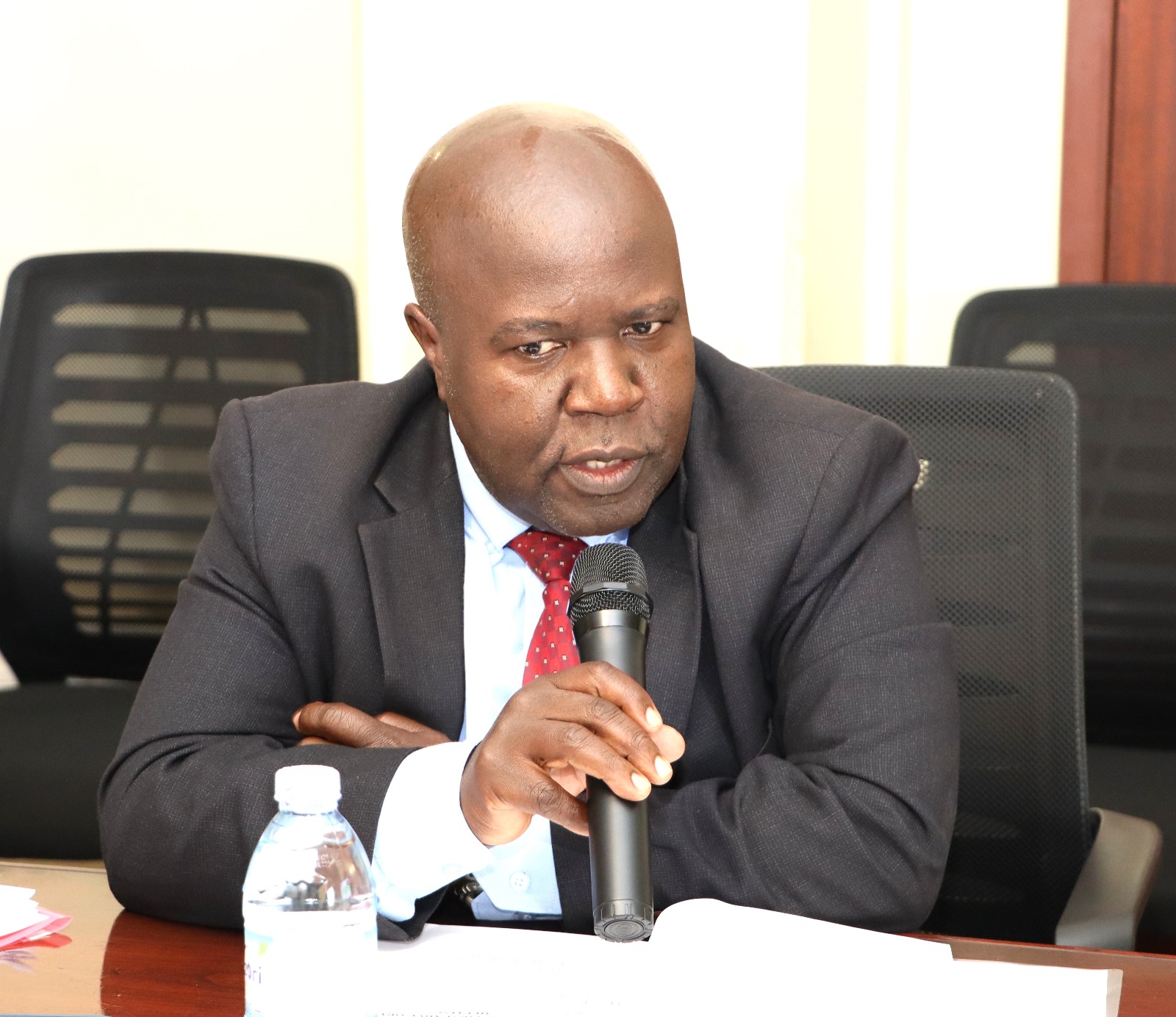
Apollo Kagwa, from the National Planning Authority (NPA), commended the Centre for its academic rigor but highlighted the need for grassroots relevance.
“EfD-Mak still operates at a high level,” Kagwa observed. “We need to bring its research down to address real issues in communities—how does it inform programs like the Parish Development Model (PDM)?”
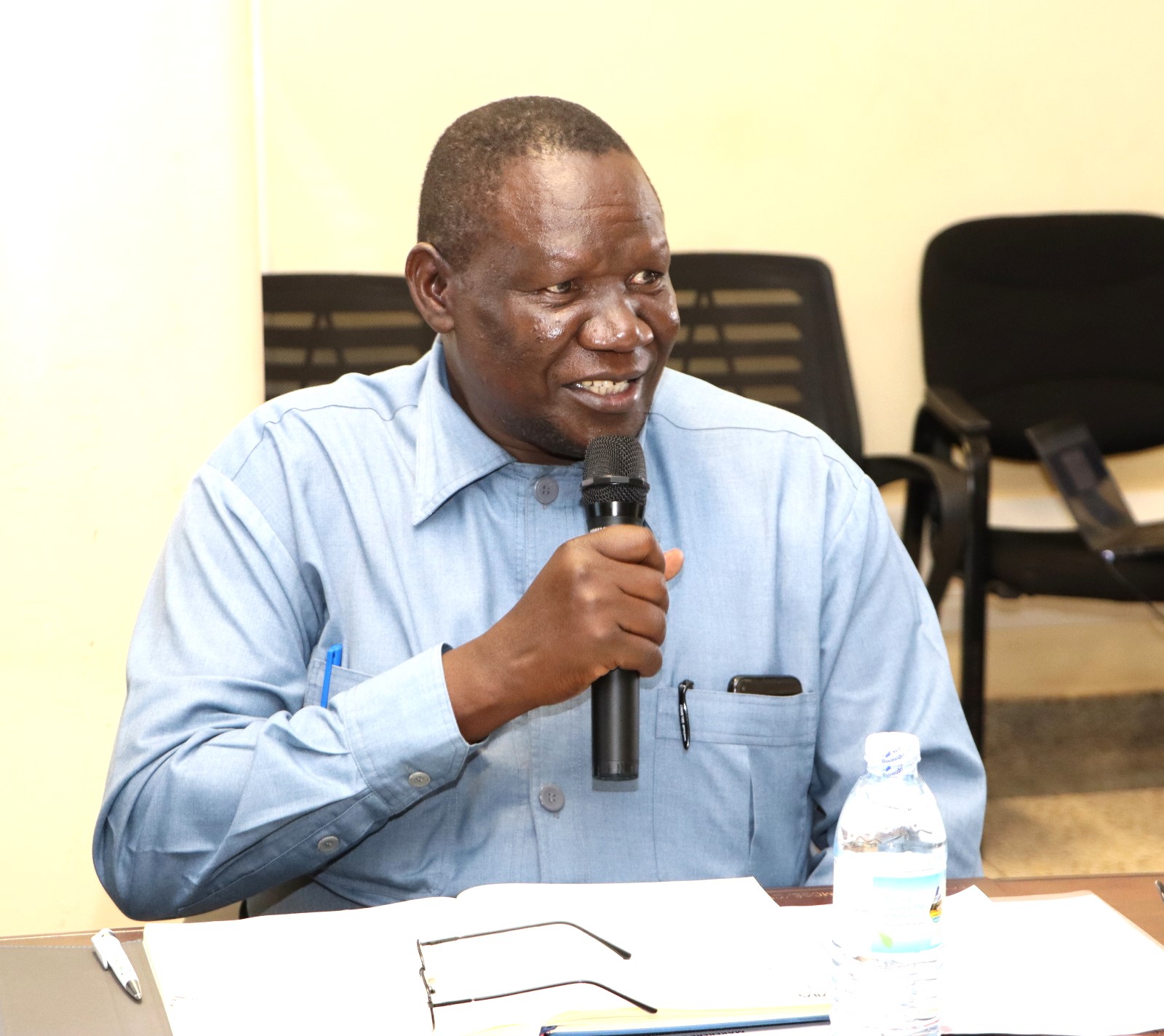
He proposed the Centre tap into government consultancy opportunities and leverage alumni networks to generate internal revenue. Kagwa also encouraged participation in global climate policy spaces, such as the upcoming COP meeting in Brazil, and to develop capacity in climate economics.
Chairperson Prof. Buyinza Mukadasi welcomed the feedback and praised board members for offering actionable insights.
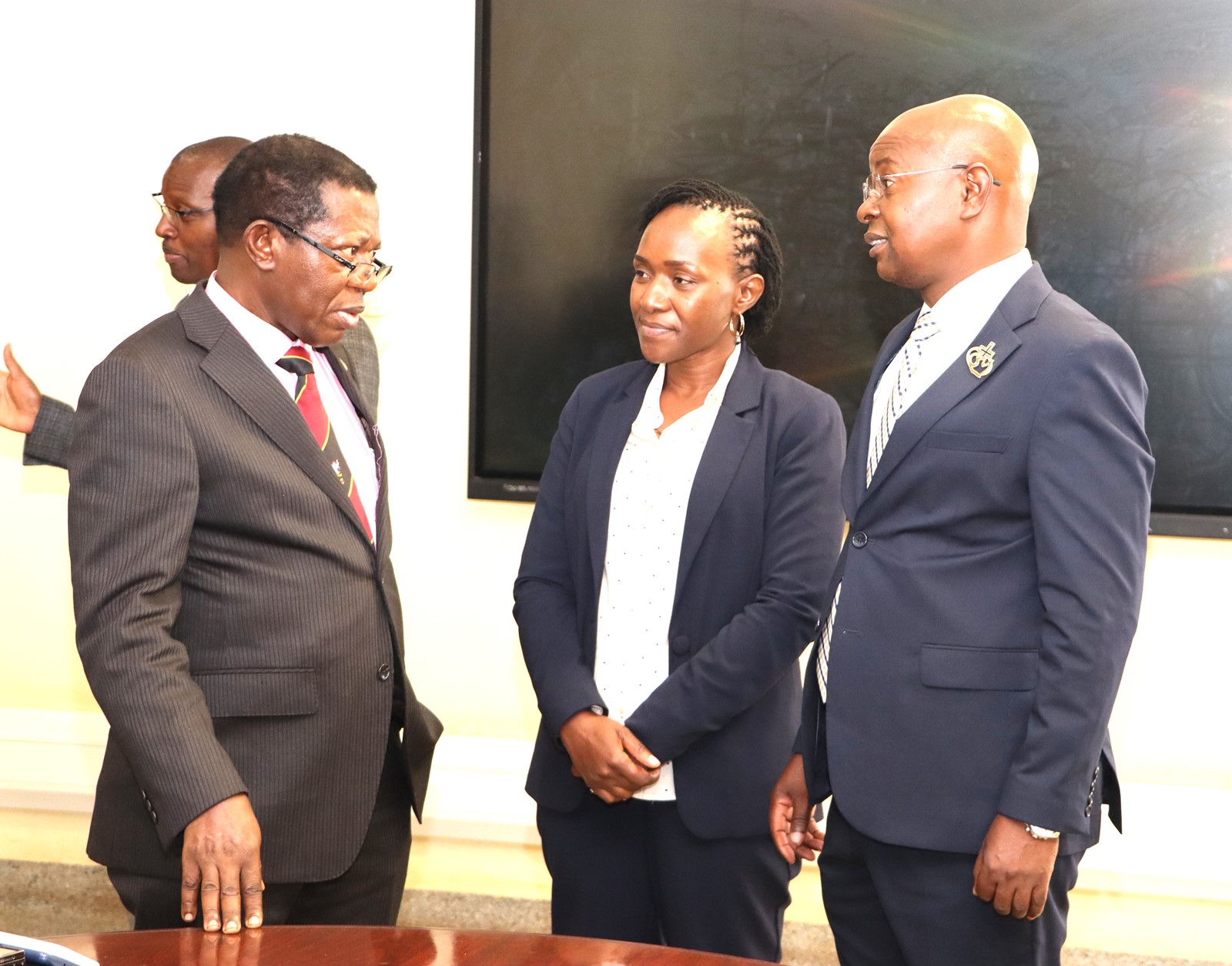
“These are excellent observations,” Prof. Buyinza said. “The next phase must involve deepening our links with the private sector, coordinating better with government and civil society actors, and preparing to expand our impact from local to global levels.”
Jane Anyango is the Communication Officer EfD Uganda.
Business & Management
Makerere’s PIM Centre Concludes Training on Certificate of Financial Implications (CFI)
Published
7 days agoon
July 12, 2025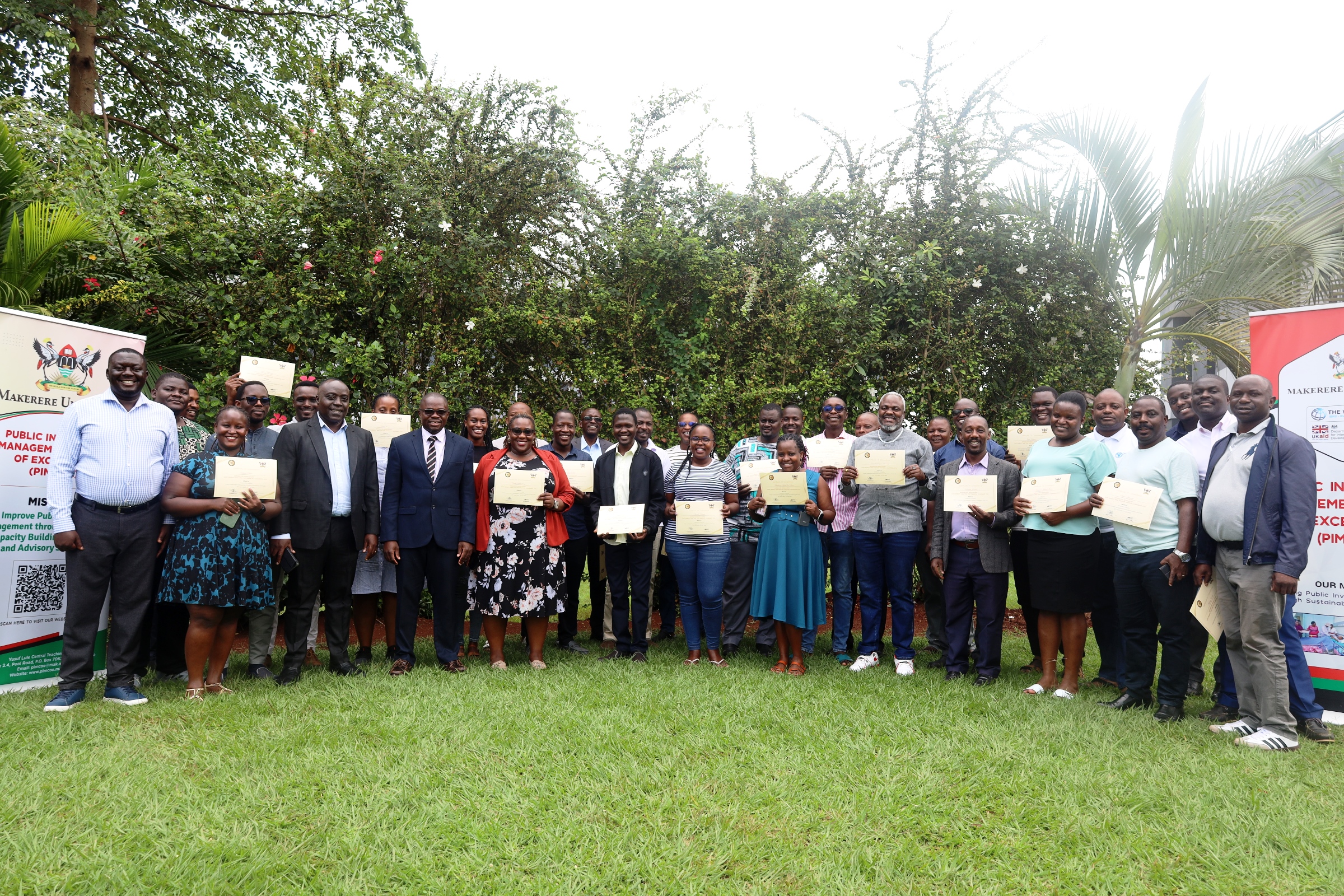
July 11, 2025 | Jinja, Uganda
The Public Investment Management (PIM) Centre of Excellence at Makerere University successfully concluded a two-week training on the Certificate of Financial Implications (CFI) – Integrated Regulatory Cost-Benefit Analysis, equipping 34 economists from various Ministries, Departments, and Agencies (MDAs) with critical policy evaluation and fiscal analysis skills.
The closing ceremony, held at the Pearl on the Nile Hotel in Jinja on July 11, 2025, marked a significant milestone in Uganda’s public finance management reform agenda. Participants received certificates in recognition of their commitment and newly acquired competencies under the revised Guidelines for Financial Clearance, which took effect on July 1, 2025.
Commissioner Paul Mwanja, who represented the Permanent Secretary and Secretary to the Treasury, officiated the ceremony. In his remarks, he commended participants for their dedication despite the demanding timing, coinciding with the financial year-end and the launch of the Fourth National Development Plan (NDP IV). He emphasized that the training comes at a critical moment as Uganda enters a growth-focused fiscal year and prepares for the 2026 general elections.
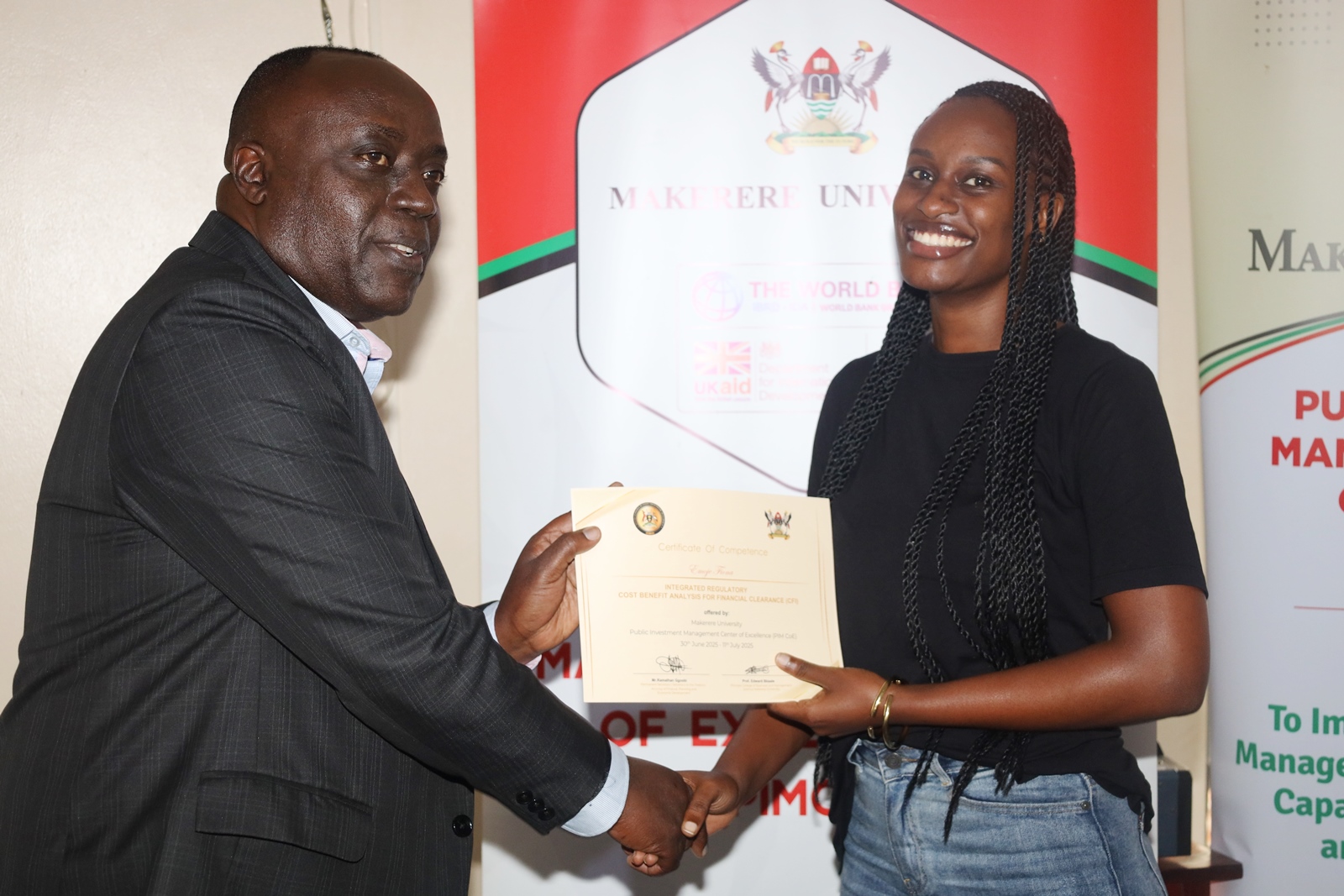
“The Revised Guidelines for Financial Clearance mark a paradigm shift towards a more data-driven, transparent, and inclusive approach to policy and legislative evaluation,” Mwanja stated. “You are the first wave of reformers. Go back as champions, create demand for quality analysis, and drive the change we want to see.”
The CFI training was designed to deepen participants’ ability to assess the financial and economic implications of government proposals, identify potential winners and losers, and design safeguards for vulnerable groups. It also aims to strengthen MDAs’ capacity to prepare their own Statements of Financial Implications and align with Regulatory Impact Assessments.
Representing the PIM Centre, Prof. Ibrahim Mike Okumu, Dean of the School of Economics at Makerere University, lauded the Ministry of Finance, Planning and Economic Development (MoFPED) for its foresight in establishing the Centre in 2023. He described the training as a powerful response to Uganda’s triple policy challenge: scale, scarcity, and speed.

“This certificate program doesn’t just teach you to ask if a project is beneficial,” Prof. Okumu said. “It trains you to assess whether it is beneficial, affordable, and resilient in real-world fiscal contexts. That is how we build trust in public spending and deliver smarter infrastructure, services, and jobs.”
Prof. Okumu also charged graduates to apply their skills at project, portfolio, and policy levels—prioritizing value for money, institutionalizing evidence-based decision-making, and mentoring future cohorts. “Go forth and make every shilling count,” he concluded.
The Ministry announced that the next CFI training cohort will commence in August 2025, as part of a nationwide rollout to ensure all government institutions are staffed with analysts capable of implementing these reforms. The long-term goal is to establish a government-wide foundation of professionals committed to fiscal discipline, data integrity, and evidence-based policymaking.
The event closed with optimism and a renewed commitment to strengthening Uganda’s public finance systems through knowledge, rigor, and reform-minded leadership.
Business & Management
School of Business Conducts Strategic Leadership Training for Makerere University Managers
Published
2 weeks agoon
July 8, 2025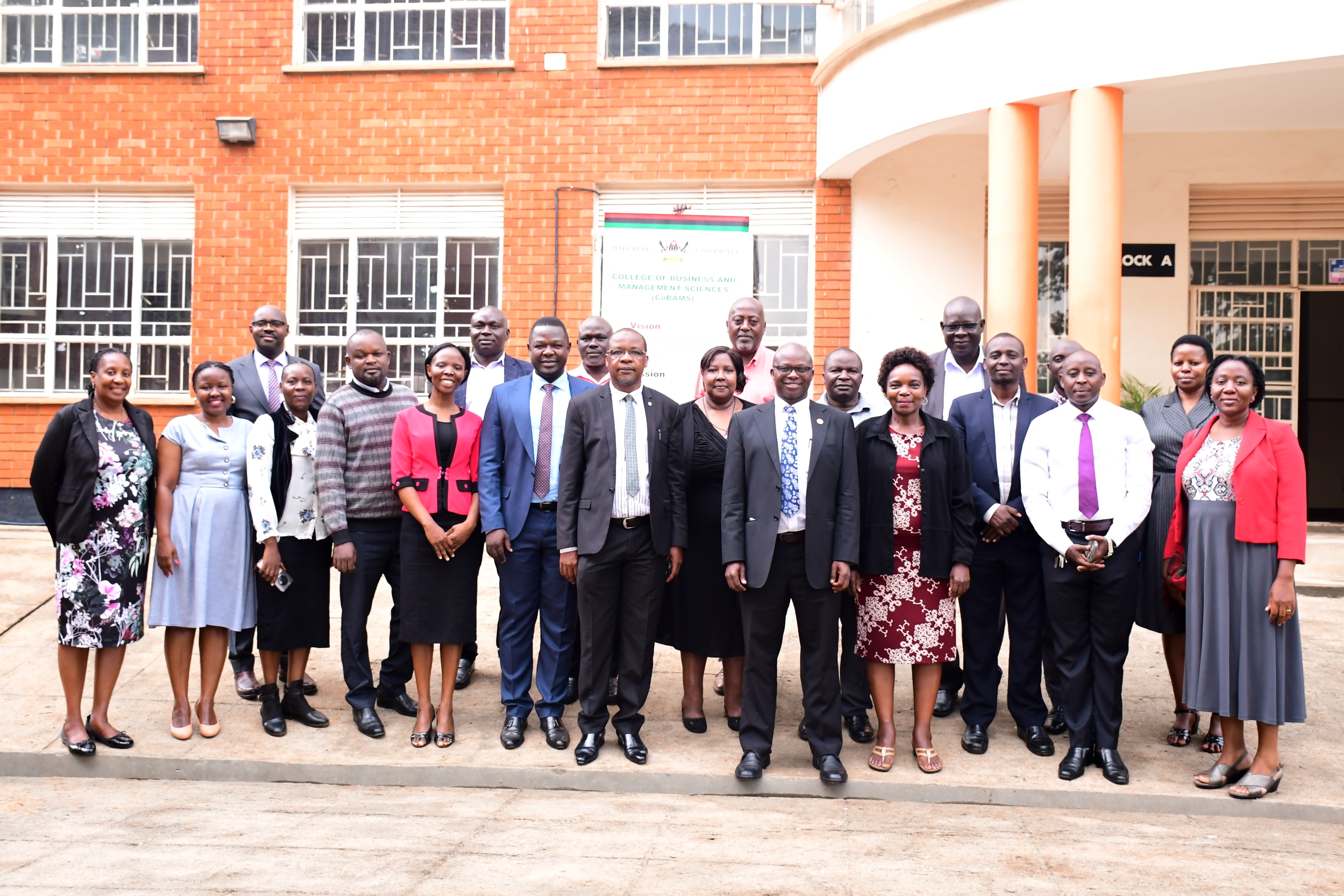
Makerere University School of Business under the College of Business and Management Sciences (CoBAMS) is conducting a five-day strategic leadership training for the first cohort of University managers.
The Executive training (7th to 11th July 2025) for middle and top level managers seeks to foster leadership capacity in line with the University’s strategic goals. The participants nominated from the different units within the University include: Deputy Principals, Deans, Heads of Departments, and Heads of sections in Administrative Units.
The Strategic Leadership course covers critical areas such as Strategic leadership overview and contemporary issues, Driving strategic leadership to promote organizational performance and success, Leading people in Organizations, Organizational culture and productivity, Strategic Communication, and Organizational change and development.
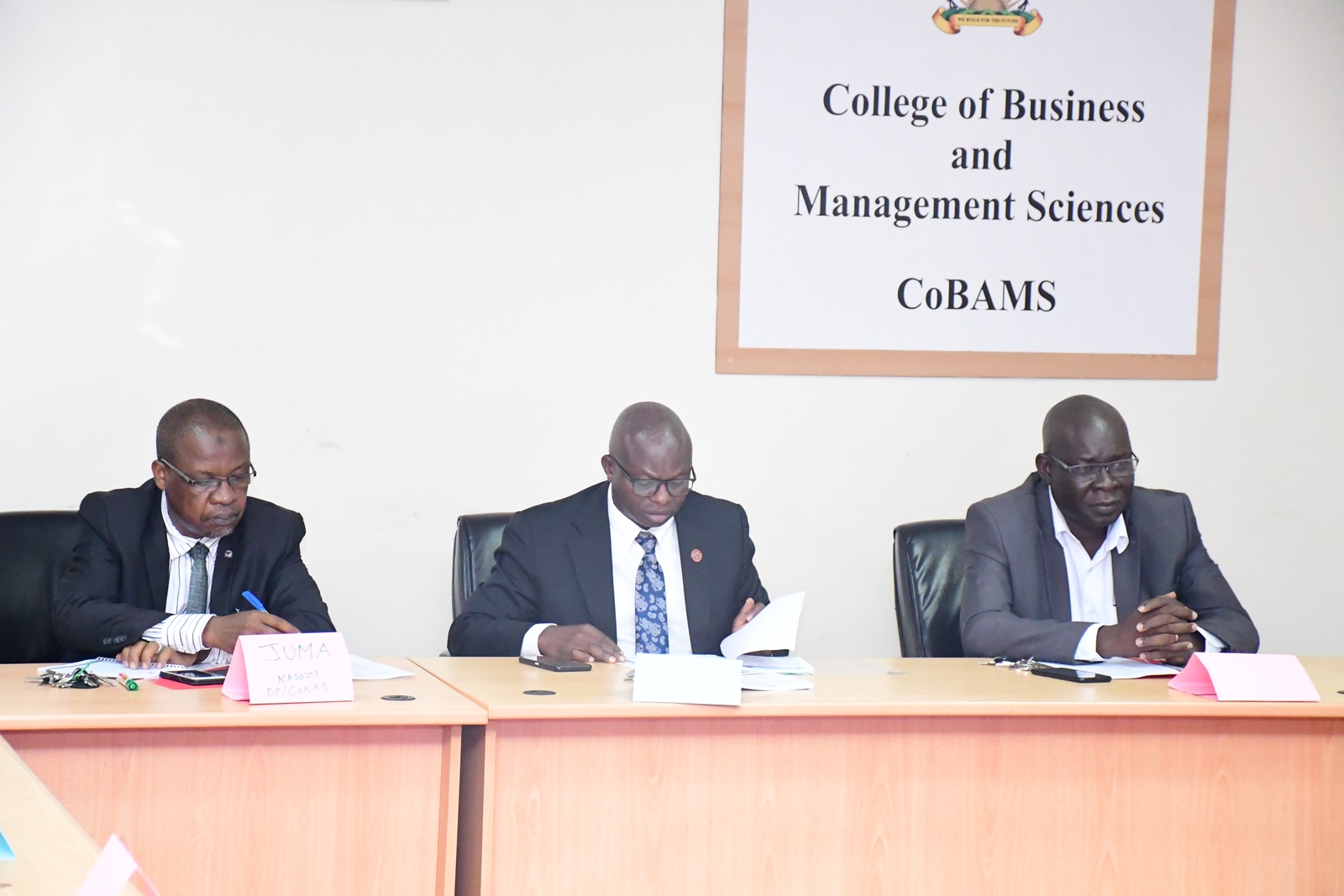
The course is delivered by seasoned facilitators from the School of Business, the private sector, industry and business community namely Associate Prof. James Wokadala, Associate Prof. Godfrey Akileng, Dr. Martin Bakundana, Dr. Sam Eyamu, Dr. S.B. Wanyama, Ms. Irene Nayera, Mr. Henry Rugamba, and Mr. Ronald Bbosa.
Addressing the participants, the Dean-School of Business, Associate Prof. Godfrey Akileng pointed out that learning was a continuous process, stating that the training was aimed at fostering professional leadership development and lifelong learning.
He elaborated that the training brings on board university leaders who are entrusted with managing people. Emphasizing that people are the most important resource in an organization/institution, the Dean highlighted the need to train and equip those managing offices, with strategic leadership knowledge, skills and values.
Unpacking the concepts of leadership and management, Associate Prof. Akileng revealed that most organizations need leaders, and not managers. In light of this, he stated that most business schools in the world were emphasizing leadership more than management. He explained the paradigm shift from traditional management practices to leadership-focused training, with a special call to leaders to always adapt and navigate complex organizational environments.
The Principal of the College of Business and Management Sciences, Prof. Edward Bbaale, represented by the Deputy Principal-Associate Prof. James Wokadala underscored the College’s pivotal role as a hub of excellence in Business, Economics, and Management. The Principal highlighted the growing significance of strategic leadership in today’s academic and professional landscapes, noting that even seasoned leaders must continue evolving in their leadership practices.
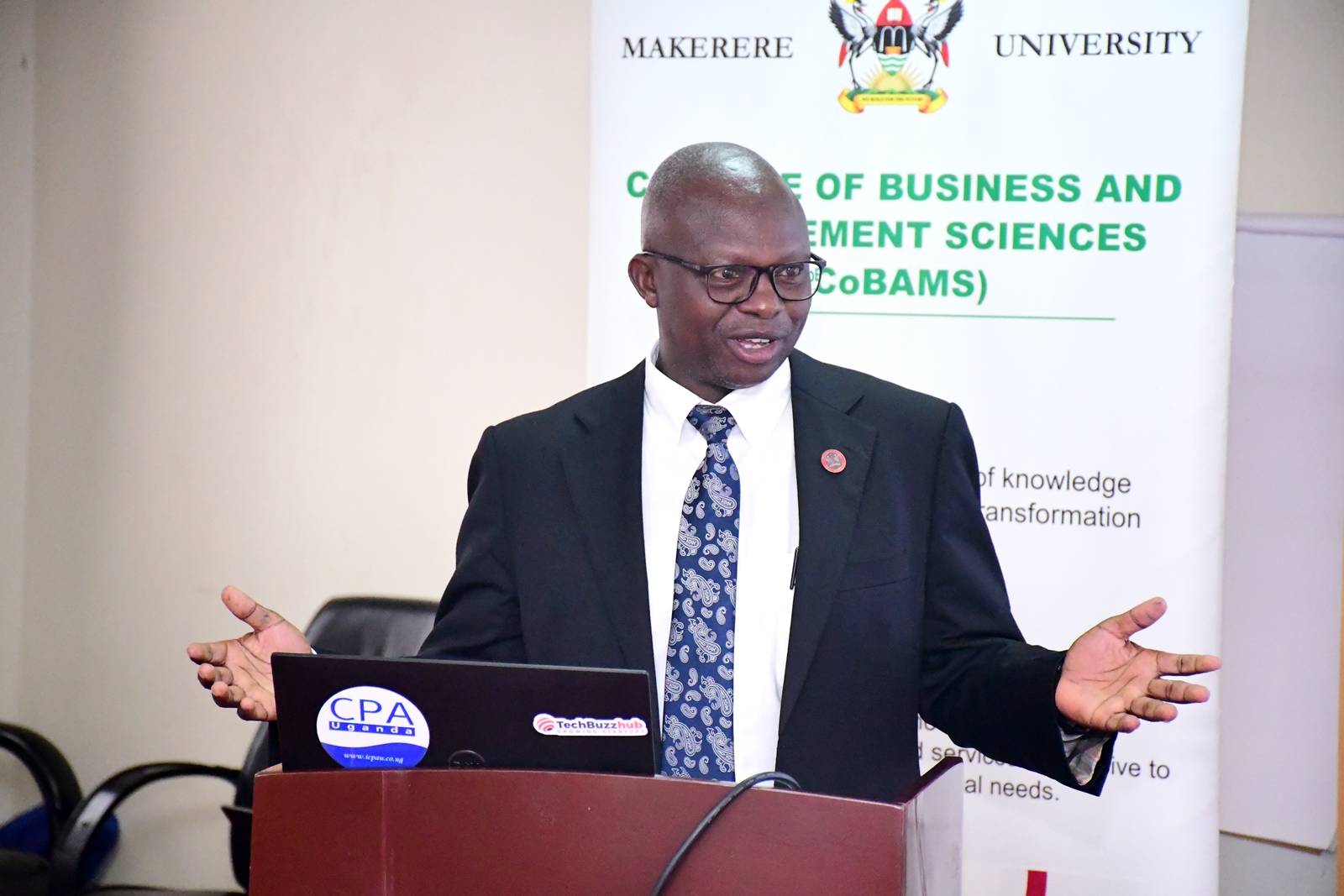
Sharing his lived experience, Associate Prof. James Wokadala, disclosed that a significant number of people entrusted with offices or managerial positions fear to make decisions. “One of key challenges faced by several organisations and universities is the fear by leaders and managers to take bold decisions. To address this challenge, this strategic leadership training conducted by the School of Business has been designed to empower you, with knowledge and skills in strategic decision making,” he stated.
The Coordinator of Partnerships and Collaboration, Dr. Martin Bakundana highlighted the importance of the program in developing leadership skills in a dynamic business environment. He acknowledged the growing relevance of leadership concepts such as transformational and thought leadership.
“We are at a turning point in the world of leadership, and it is essential for Makerere University to prepare its leaders for the challenges ahead,” Dr. Bakundana said. He encouraged participants to engage with the support team throughout the training, reinforcing the collaborative nature of leadership development. Dr. Bakundana is a Lecturer in the Department of Accounting and Finance, School of Business, at the College of Business and Management Sciences.
The remarks from the aforementioned University officials, set the pace for the training sessions. The first day featured two topics: Strategic Leadership Overview and contemporary issues by Associate Prof. Godfrey Akileng, and Driving Strategic Leadership to promote Organizational performance and success by Dr. Sam Eyamu.
Presenting the Strategic Leadership overview and contemporary issues, Associate Prof. Akileng tackled the following: The concept of change and the need to adapt, disruption being the new normal, strategic leadership styles, strategic leadership skills, as well as the principles of strategic leadership.
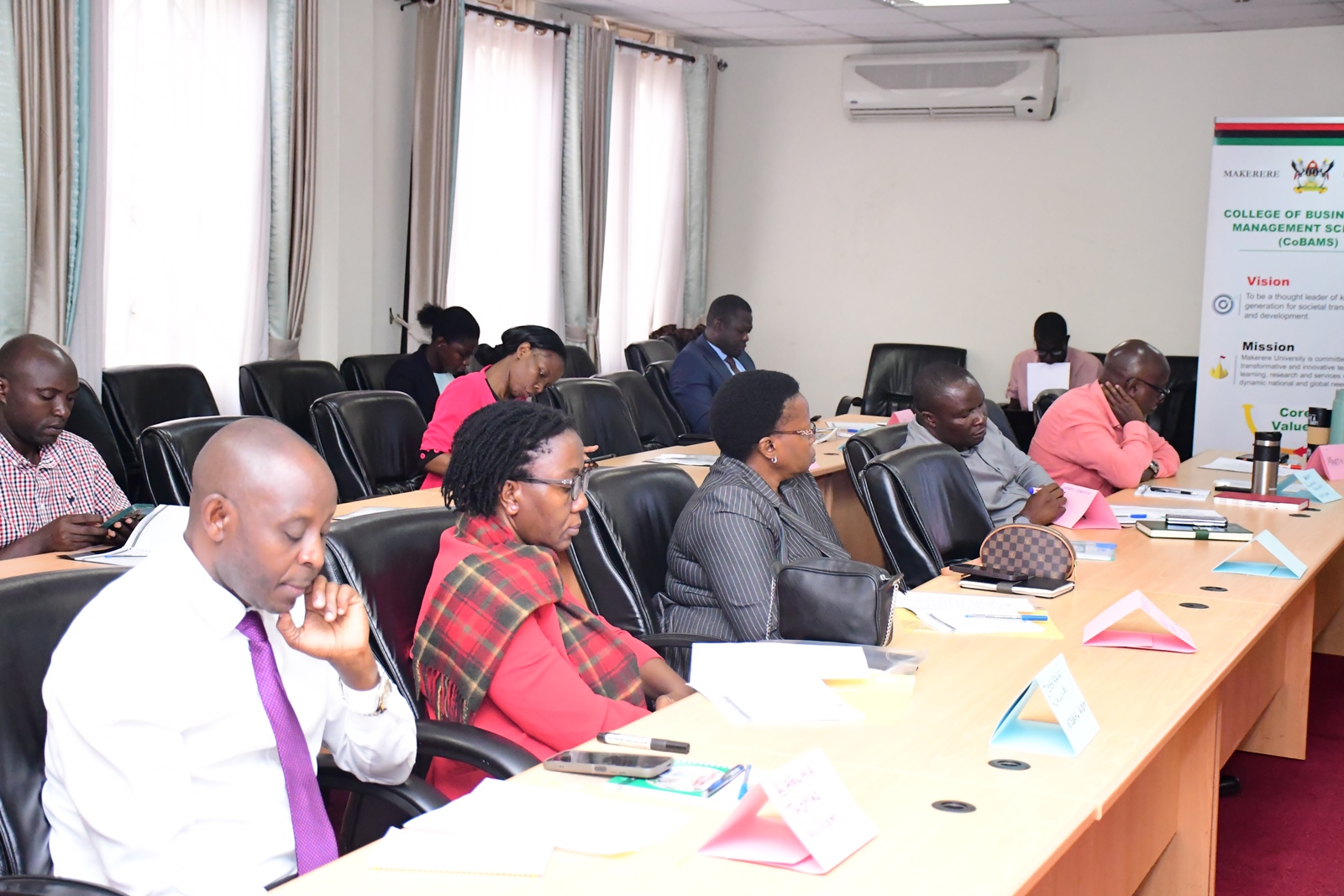
He kicked off his presentation by a powerful quote that enabled the audience to understand and appreciate the current business terrain. “We stand on the brink of technological revolution that will fundamentally alter the way we live, work, relate to one another. In its scale, scope and complexity, the transformation will be unlike anything humankind has experienced before,” Klaus Schwab Founder and Executive Chairman World Economic Forum.
Associate Prof. Akileng stated that change is a fact that is inevitable in our lives, with the landscape in which we work, constantly changing. He mentioned that organizations/institutions as well as Organizational settings do change, which necessitates leaders and staff to adapt to the trends by doing things differently. “I implore the leadership and staff to change the way they do things, if we are to survive,” he said.
Acknowledging that disruption is the new normal, he encouraged the participants to confront VUCA situations through strategic decision making. Coined in the early 2000’s, the military-derived an acronym-VUCA, which stands for Volatility, Uncertainty, Complexity and, Ambiquity.
Cognizant that change is inevitable, and that VUCA situations are prevailing in most organizations and business settings, Associate Prof. Akileng introduced the different strategic leadership styles namely transformative, visionary, transactional, and collaborative. He challenged the participants to apply the best leadership style or a blend of them.
For instance, Associate Prof. Akileng advised the middle and top level managers to utilize the collaborative leadership style when marketing a brilliant idea or an innovation. “You must work with others or behind the scenes to ensure that those in authority understand and support your idea.”
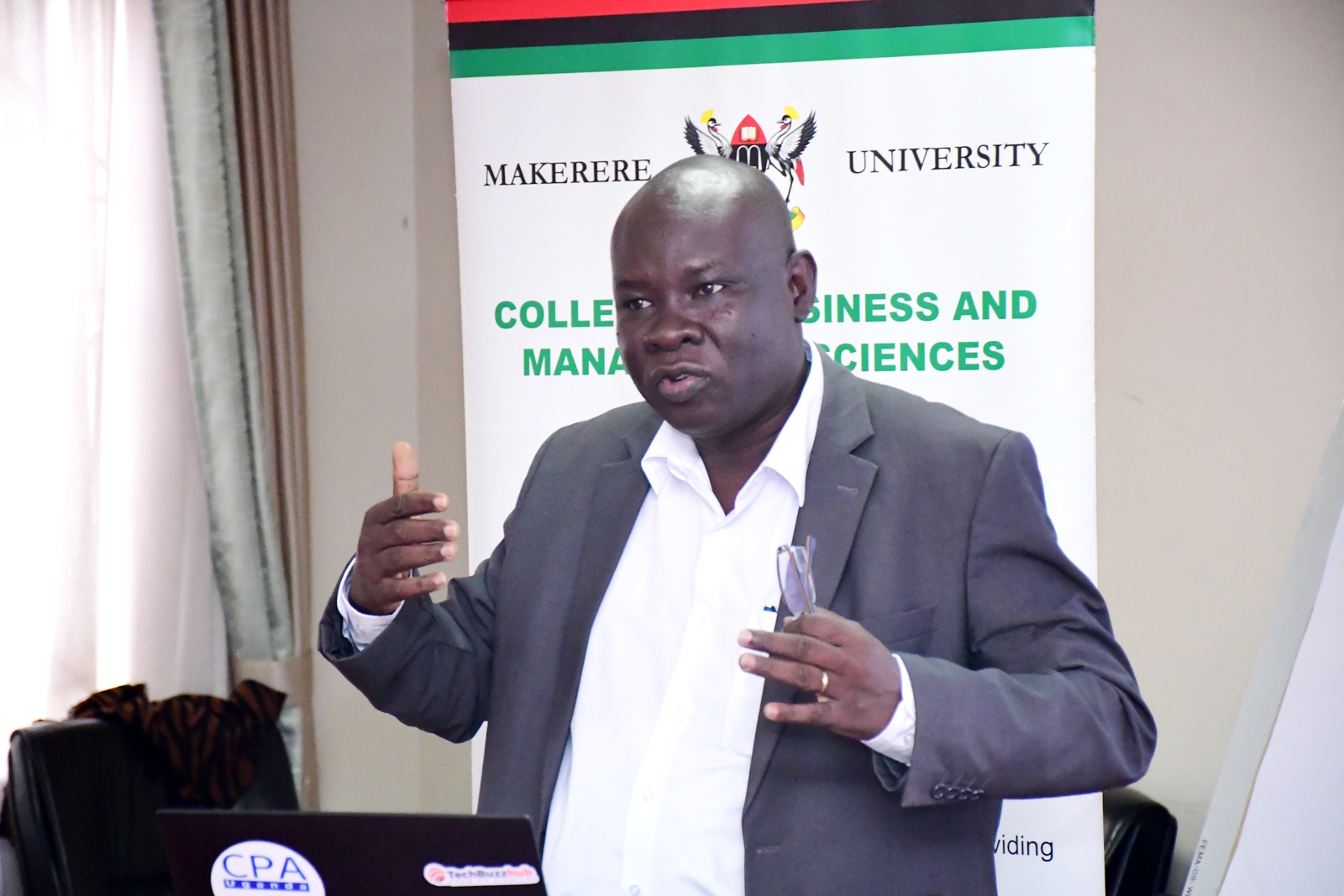
Drawing on lessons from past industrial revolutions, Associate Prof. Akileng emphasized that embracing technological advancements is critical for staying relevant. “History shows us that industries that failed to adapt to new technologies inevitably failed to compete,” he remarked.
Specific to education, he explained that COVID-19 disrupted teaching and learning. He added that most of the Universities in Africa that were pre-dominantly delivering lectures through physical interaction had to change and adapt to the terms and conditions dictated by the new normal. Universities embraced blended learning in order to overcome the disruption that threatened their comfort zones and preferred way of doing things.
He cited Makerere University, which deployed a blend of transformative, participant, and collaborative strategic leadership styles to rejuvenate its online learning systems/platforms. The Office of the Deputy Vice Chancellor (Academic Affairs), the College of Education and External Studies through its Institute of Open, Distance and e-Learning (IODel) worked with Colleges and the Directorate of ICT Support services (DICTS) to bring on board academic staff.
The Dean, School of Business indicated that the new normal in university education involves integration of online teaching, digital pedagogies, artificial intelligence (AI), Virtual Reality (VR), and Augmented Reality (AR) in teaching and learning, research and community engagements.
He called upon the participants to take into account the following strategic leadership skills: Foresight, curiosity, decisiveness, active listening, communication and diplomacy. He stressed that active listening is a key skill for a strategic leader.
Tackling the principles of Strategic leadership, the Dean-School of Business pointed out that strategic leaders are always on the top. He added that strategic leaders are innovative individuals, who are always pushing through brilliant ideas.
He notified the participants that strategic leaders take on the format of an eagle. “You must have a great vision with ability to navigate stormy turbulence, exhibit fearlessness, take the initiative, and have a high sense of self determination.”
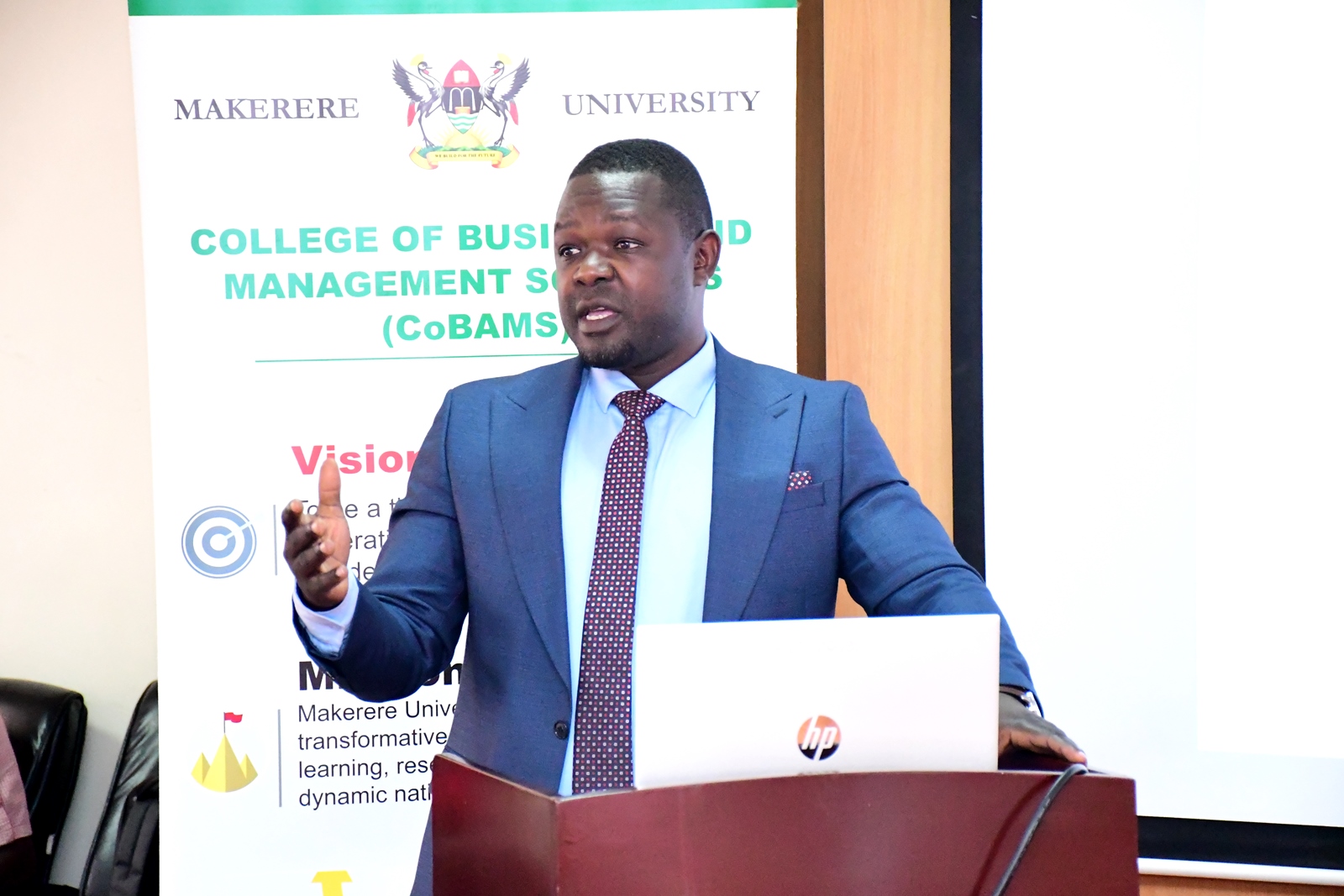
Presenting to the participants, Dr. Sam Eyamu, from School of Entrepreneurship and Management at Kyambogo University, provided insights into strategic leadership with an emphasis on organizational performance. He defined leadership as the ability to create a lasting legacy through collaboration. “Effective leadership inspires and unites teams, ensuring that their collective efforts have a long-term impact,” he said.
Dr. Eyamu guided that strategic leaders must work with others, be able to influence, and must create change. He articulated that strategic leaders should embrace Artificial Intelligence (AI). He advised university leaders and staff to accept that AI is the new normal, and work together to come up with policies and approaches on the integration of AI in the university systems and processes.
He added that strategic leaders should be resilient with ability to survive and lead the team to the desired goal. He called upon the participants to set goals, use key performance indicators, come up with work plans, score cards, and among other methods that measure performance. He introduced several tools designed to align strategy with performance, including the Balanced Scorecard, Objectives and Key Results (OKRs). Dr. Eyamu disclosed that celebrating small successes can accumulate into significant organizational momentum.
Dr. Eyamu highlighted two distinct leadership approaches: Rapid Fire Leadership, which encourages trying multiple strategies quickly and the Sniper Leadership that focuses on a more deliberate and calculated approach.
He argued that both approaches are valid depending on the available resources, with resilience and persistence being key to success in either model. He also emphasized the importance of clear strategic direction, ensuring that all team members understand their roles in achieving organizational goals.
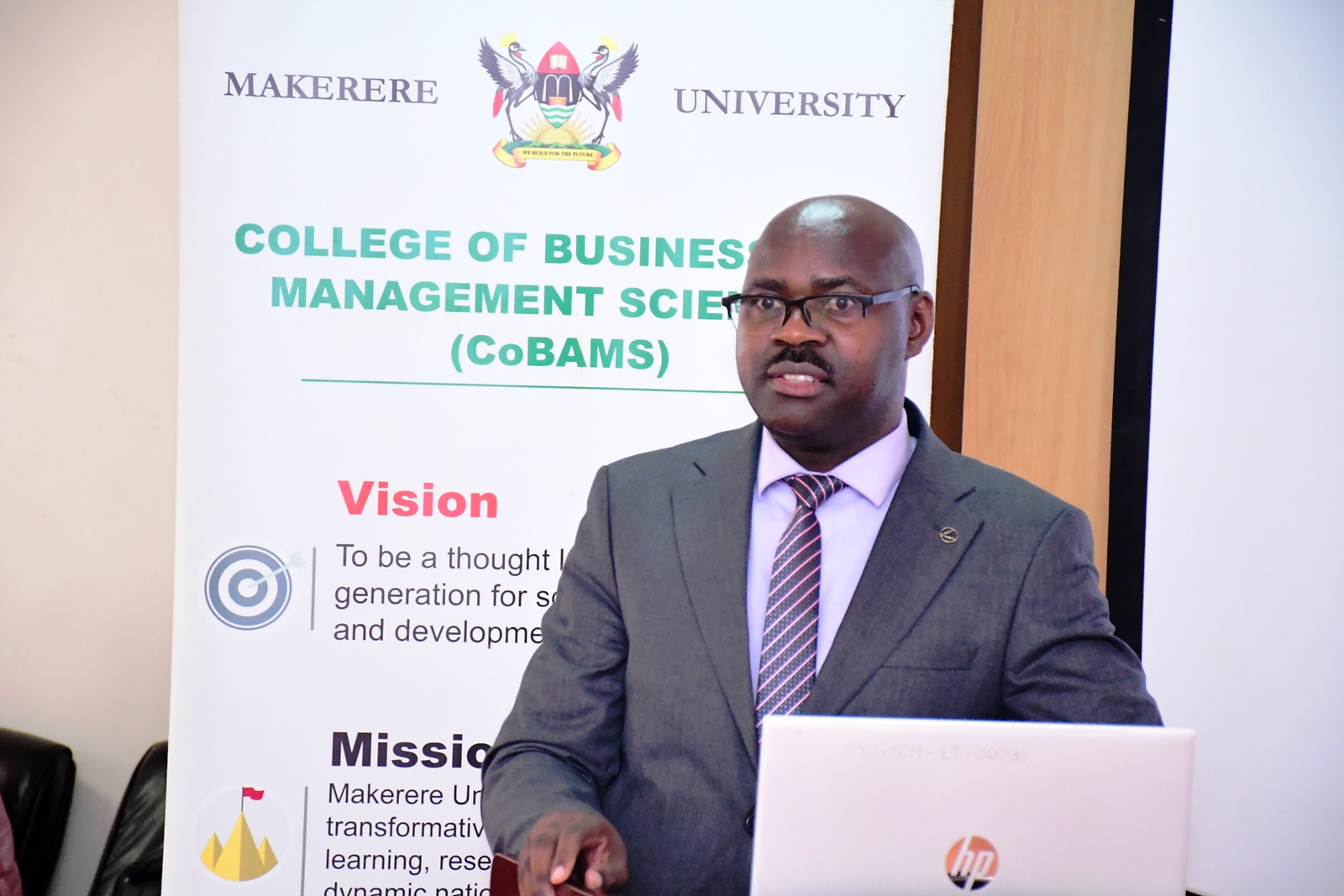
Additionally, Dr. Eyamu stressed the critical importance of performance measurement tools, such as Key Performance Indicators (KPIs), work plans, and the Balanced Scorecard, to track progress toward strategic goals. He introduced performance dashboards, which provide real-time data, and benchmarking, which allows organizations to compare their performance with industry best practices.
Dr. Eyamu introduced the Triple Bottom Line (TBL) framework, which balances social impact, environmental sustainability, and financial performance. He said that organizations must take a holistic approach to success, considering more than just the financial outcomes.
Presenting the practical tips for success, he encouraged the participants to; adopt a performance measurement framework and tool, foster and reward a culture of accountability and results, lead by example, be transparent by ensuring a consensual decision-making process, and empower team members through delegation of duties and trusting them to deliver.
The first day of the Strategic Leadership Training ignited the strategic leadership potential of the participants, which involves getting out of the comfort and safe zone, to champion the transformation at the institutional or Unit levels. The University leaders and participants in general, were encouraged to take charge by being alert, studying the times and trends, as well as coming up with innovations and strategies to create a positive difference.
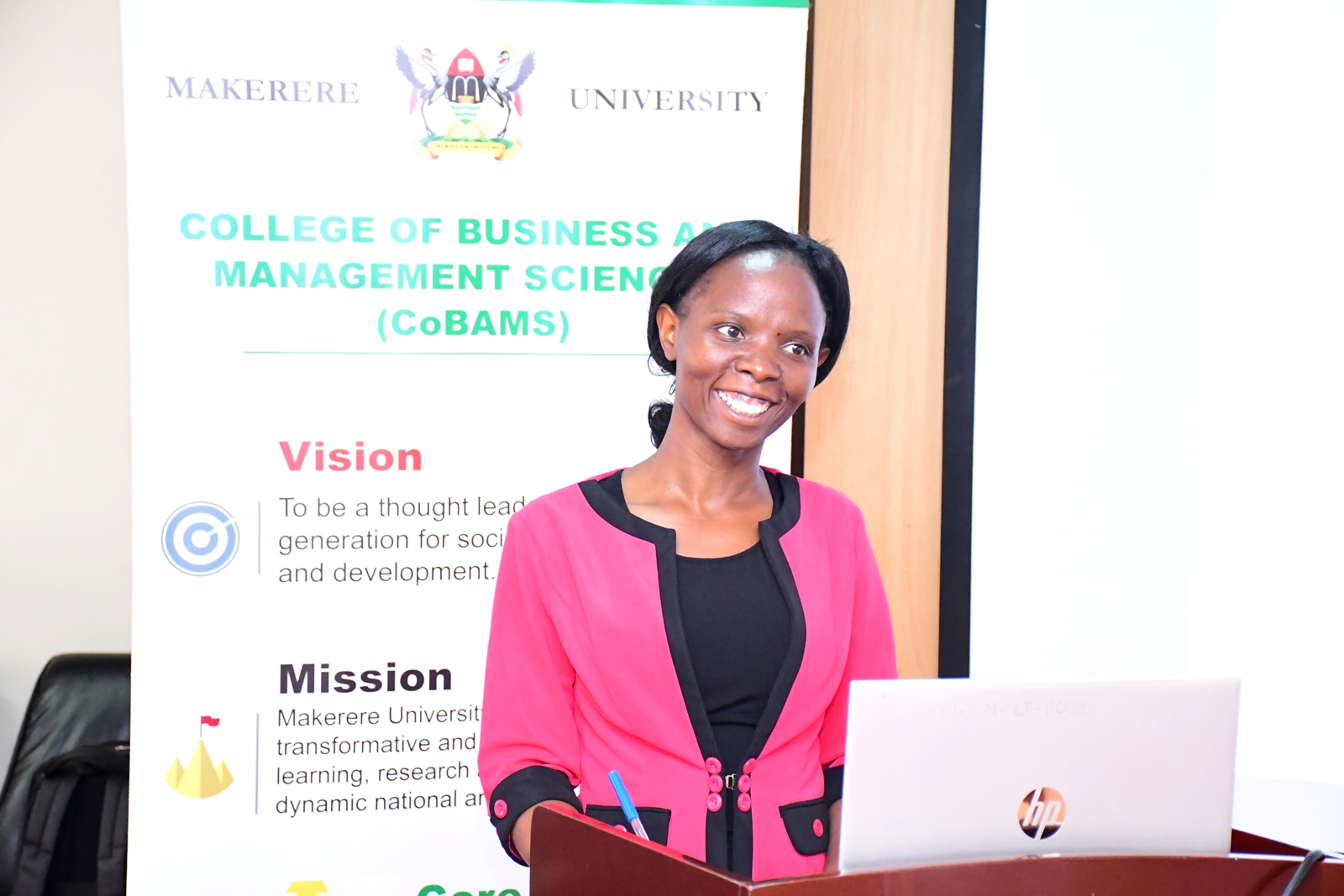
The Strategic Leadership Training was moderated by Dr. Martin Bakundana-Coordinator of Partnerships and Collaboration assisted by Ms. Ritah Namisango-Principal Communication Officer.
Trending
-

 General2 weeks ago
General2 weeks agoRe-advert: Admission to Undergraduate Programmes 2025/2026
-

 General1 week ago
General1 week agoRe-Advert for Applications for Diploma and Certificate Training
-

 General5 days ago
General5 days agoMakerere University Fees Waiver for 40 First Year Female Students 2025/2026
-

 General2 weeks ago
General2 weeks agoPress Statement on Ranking
-

 Health1 week ago
Health1 week agoCall for Applications: Responsible Conduct of Research (RCR) Training Course
